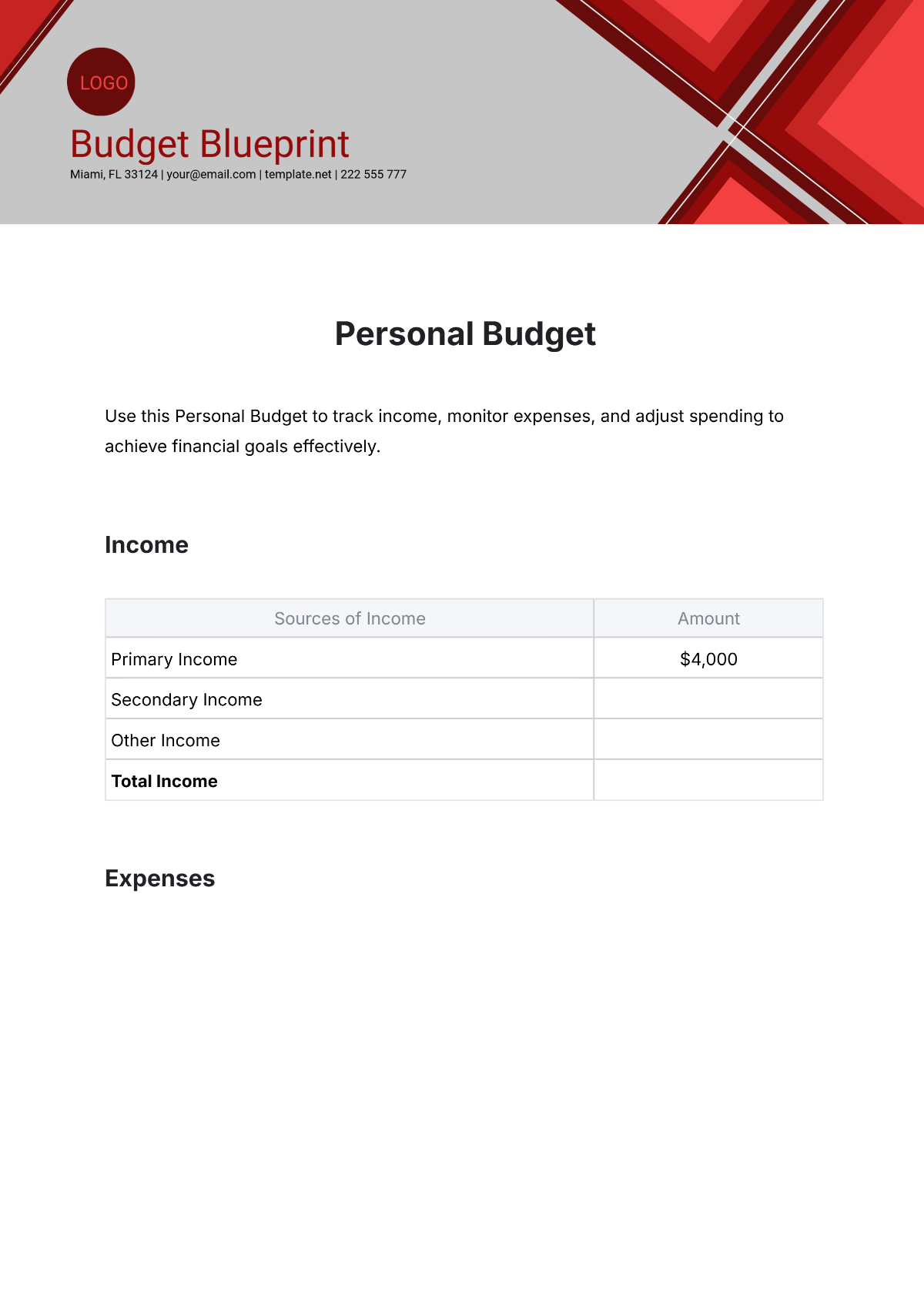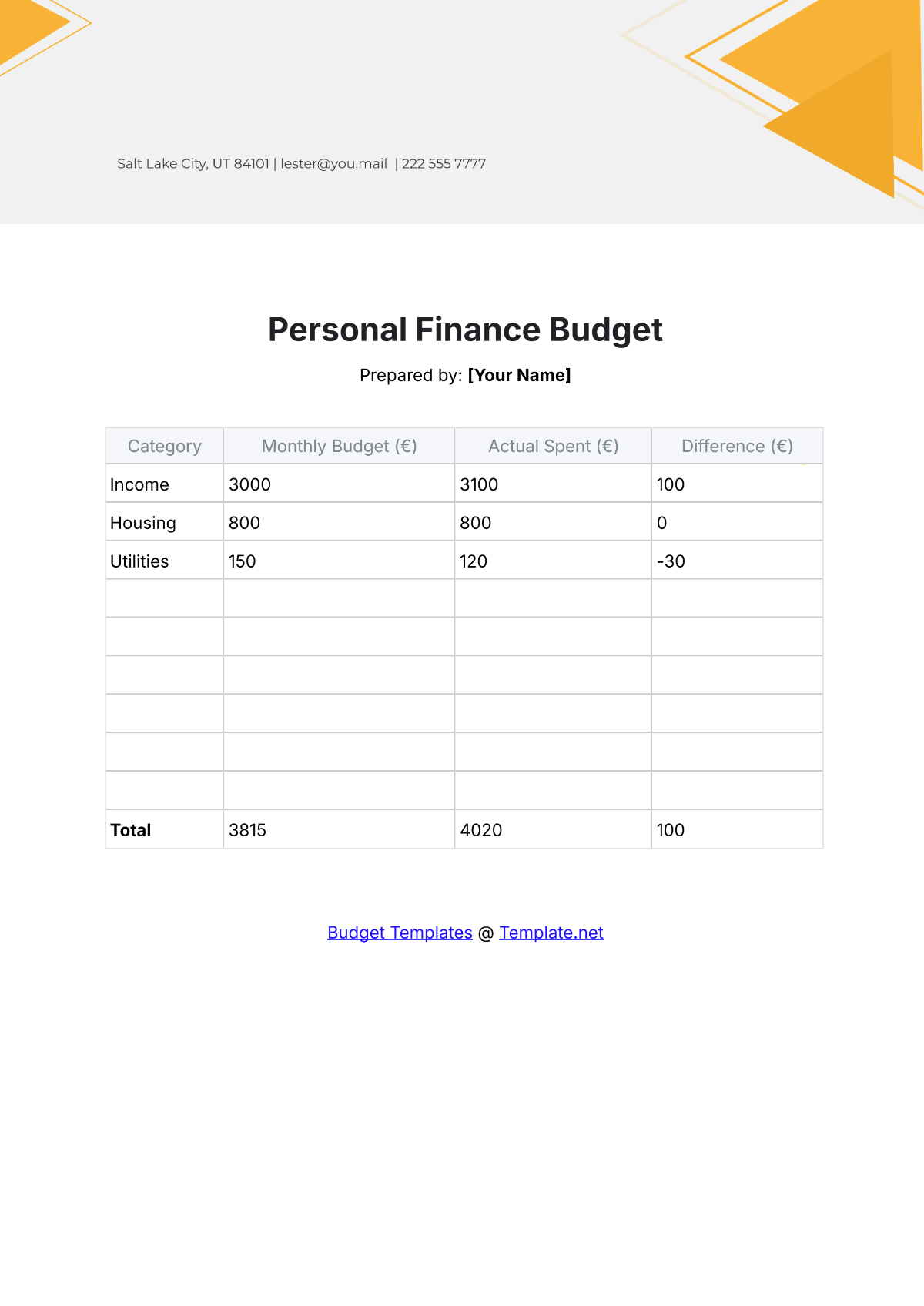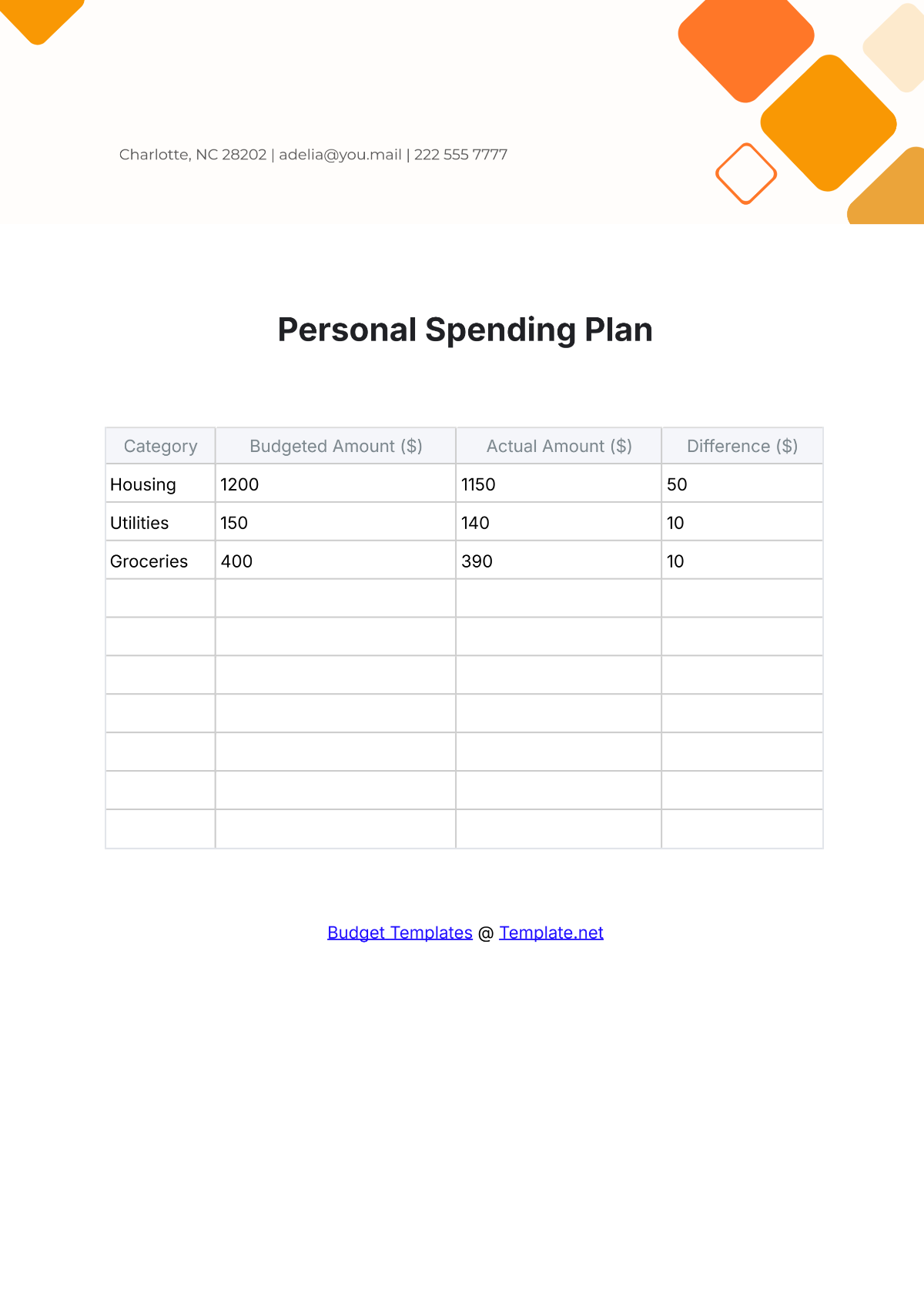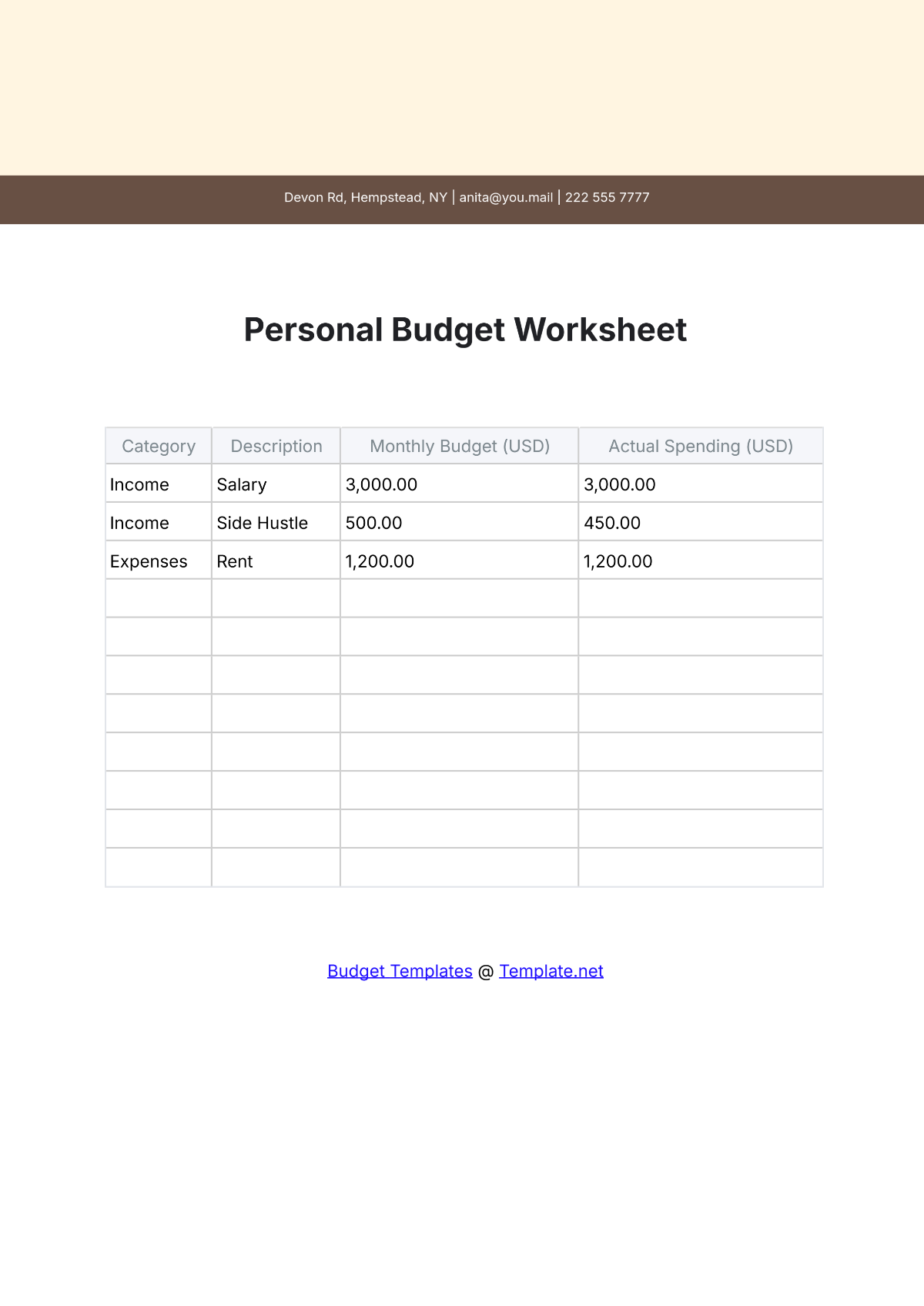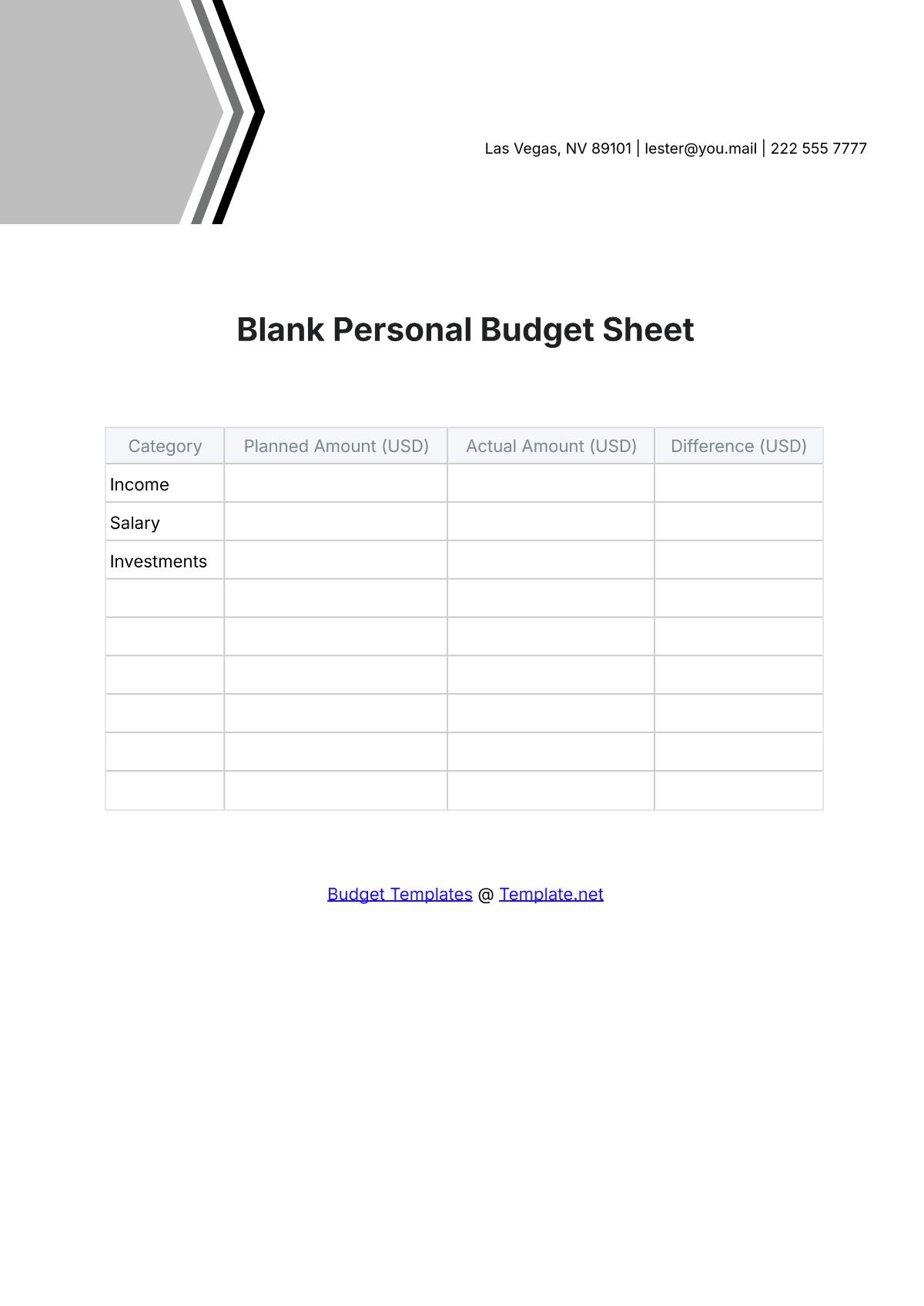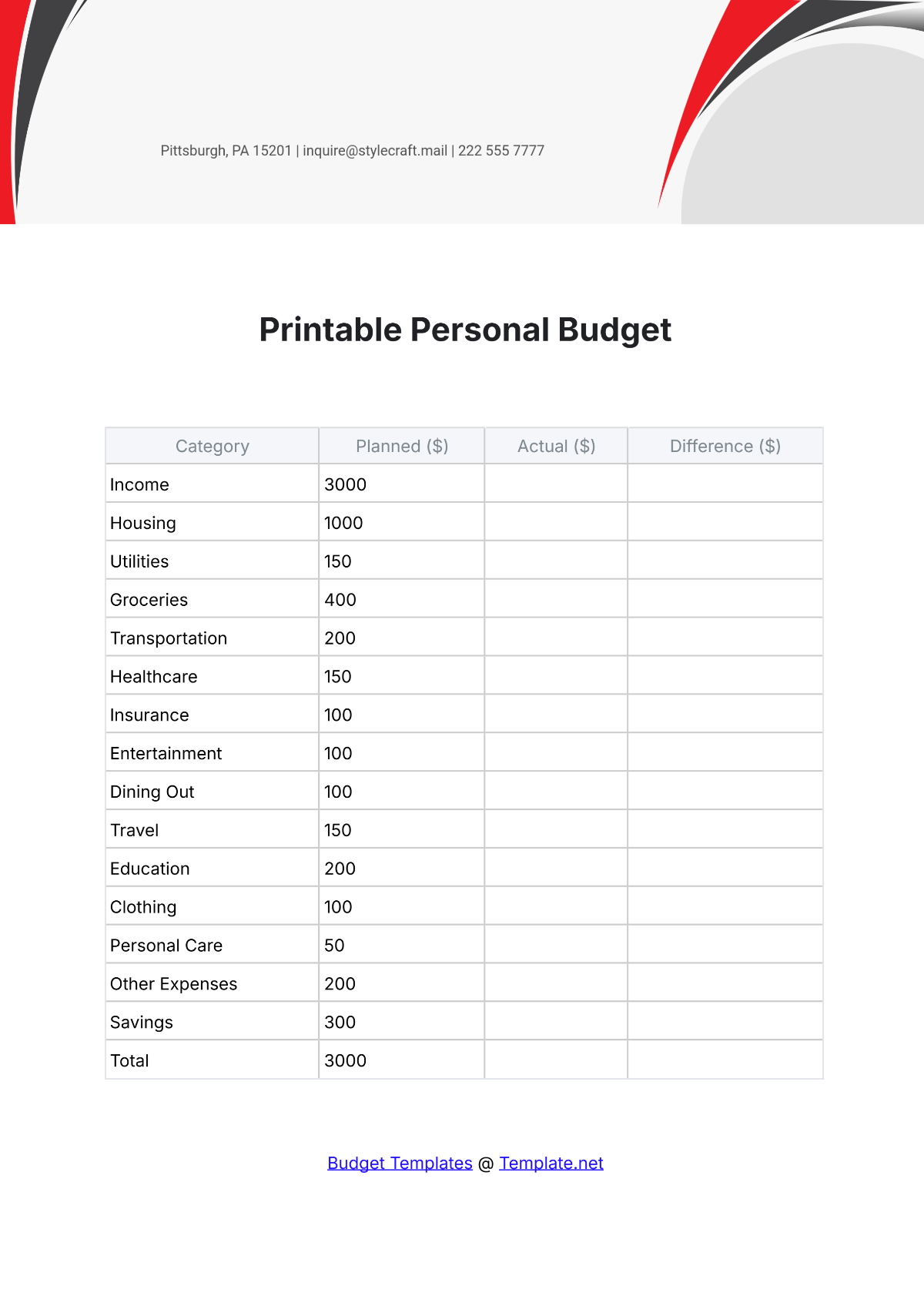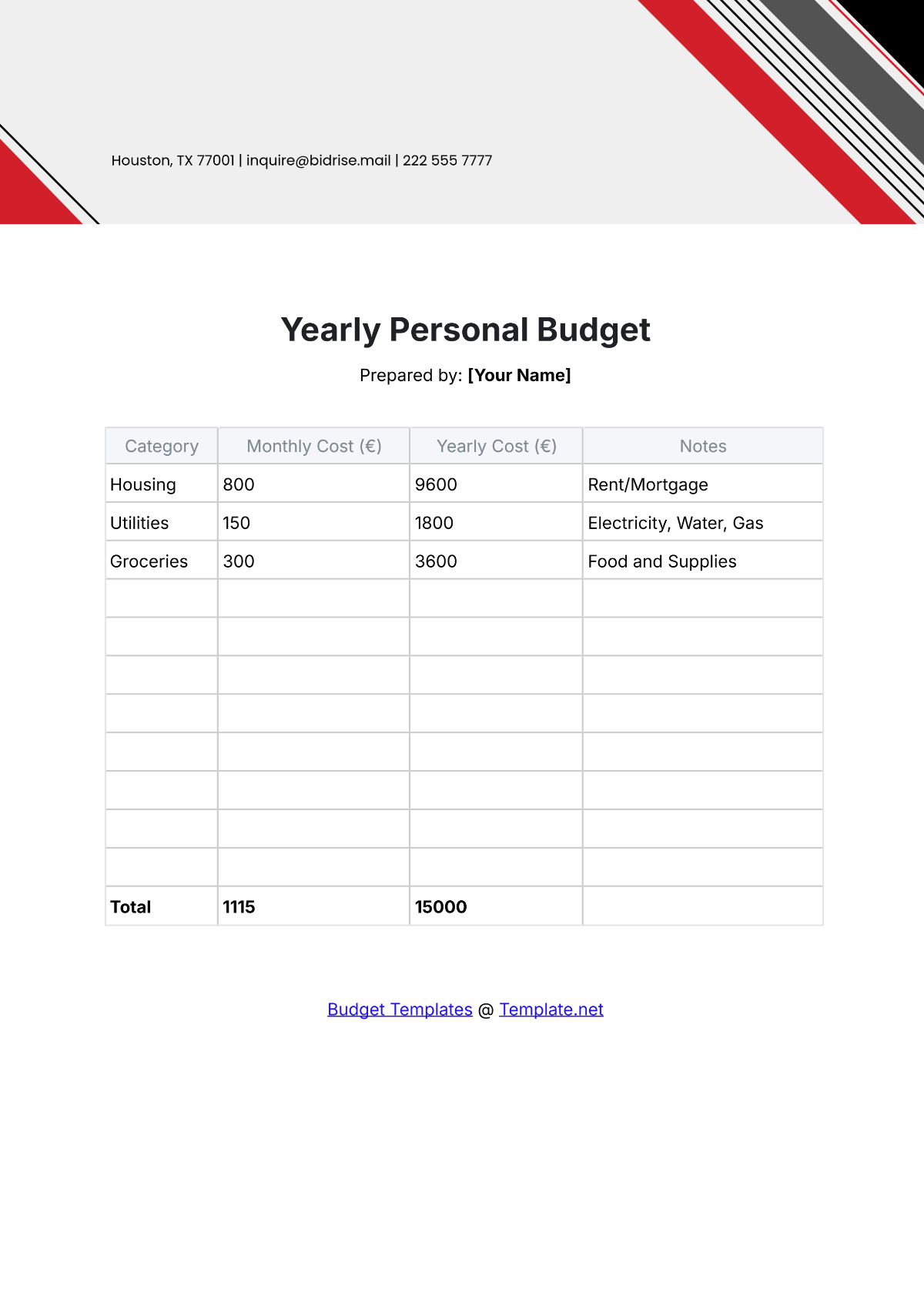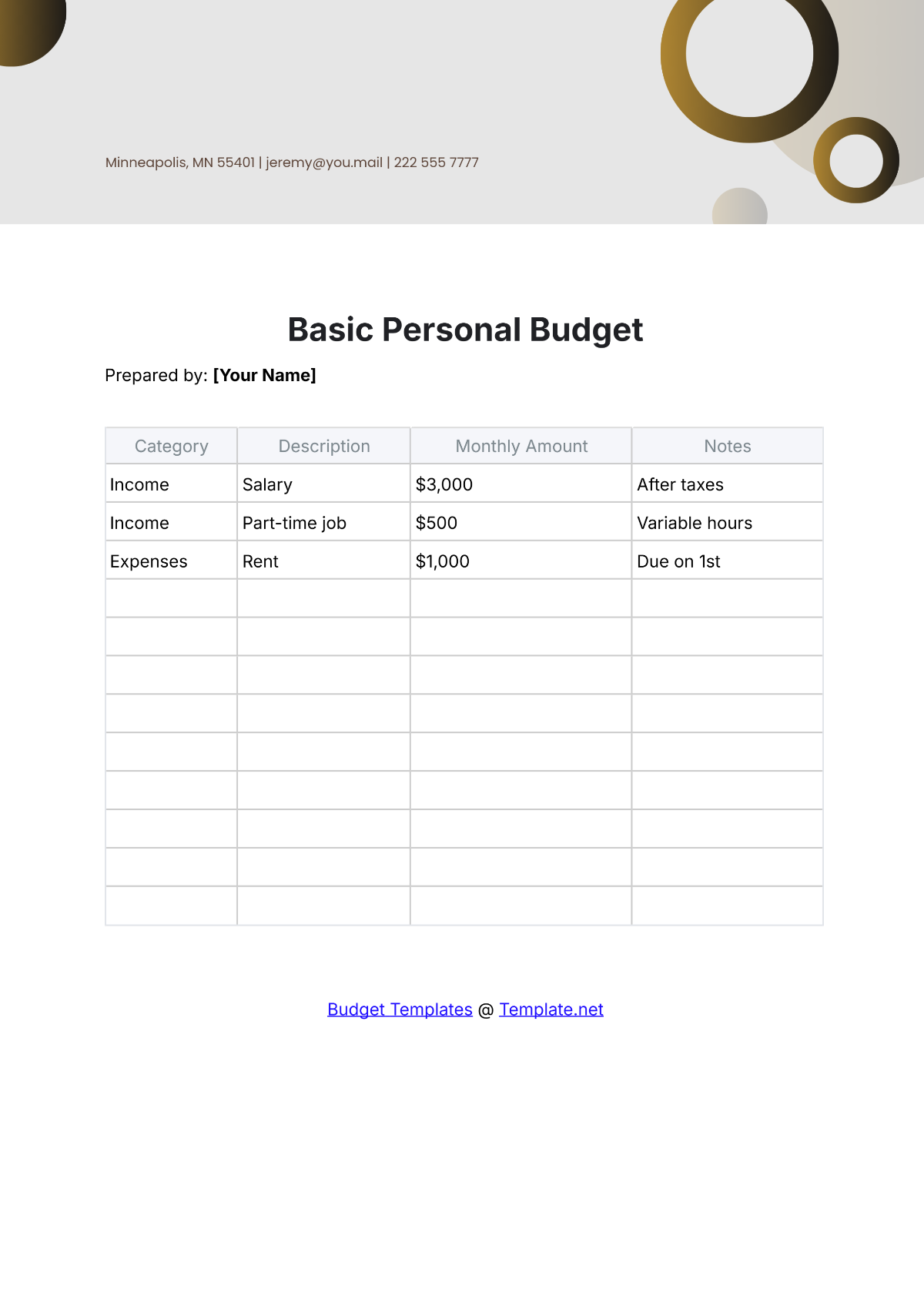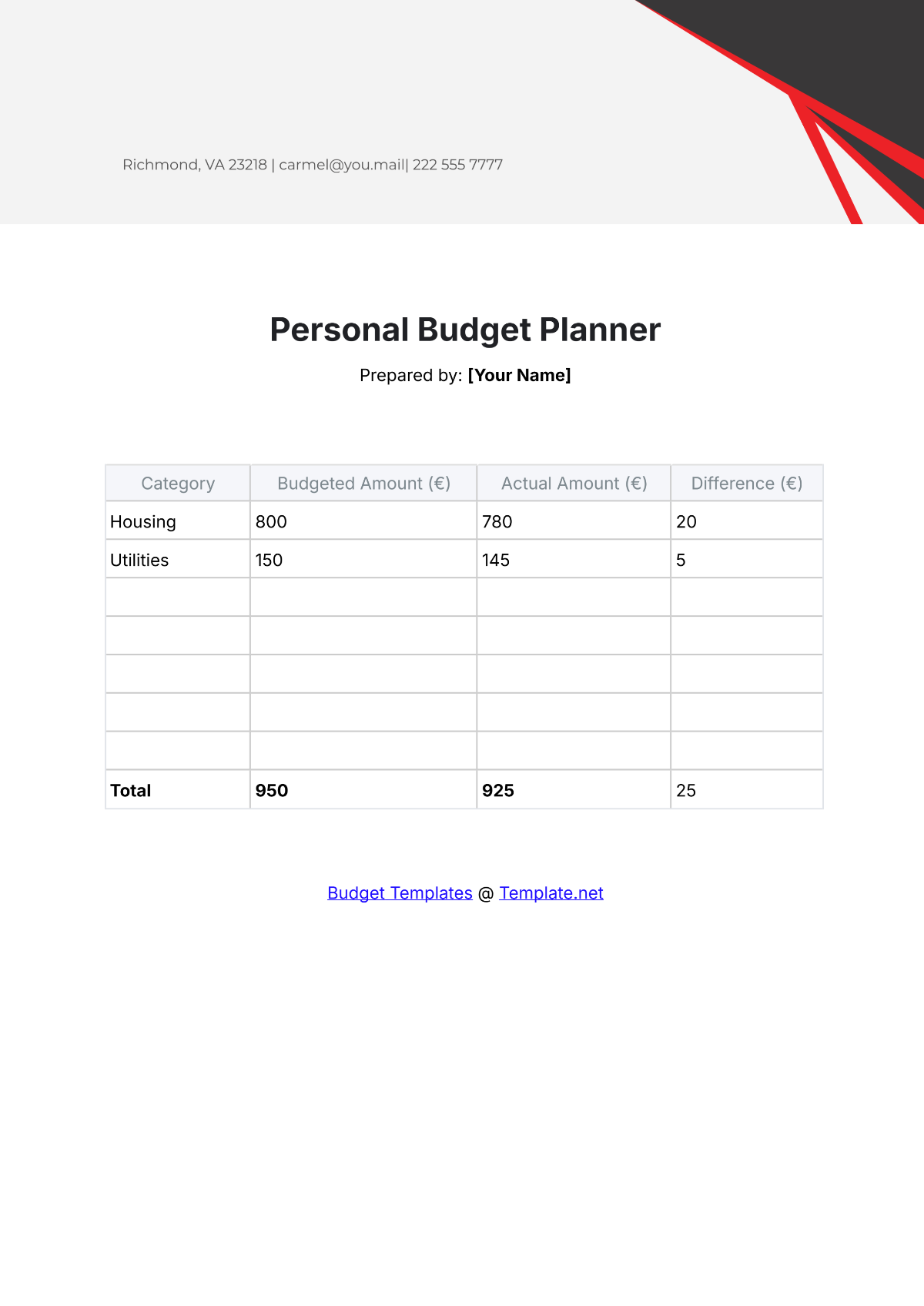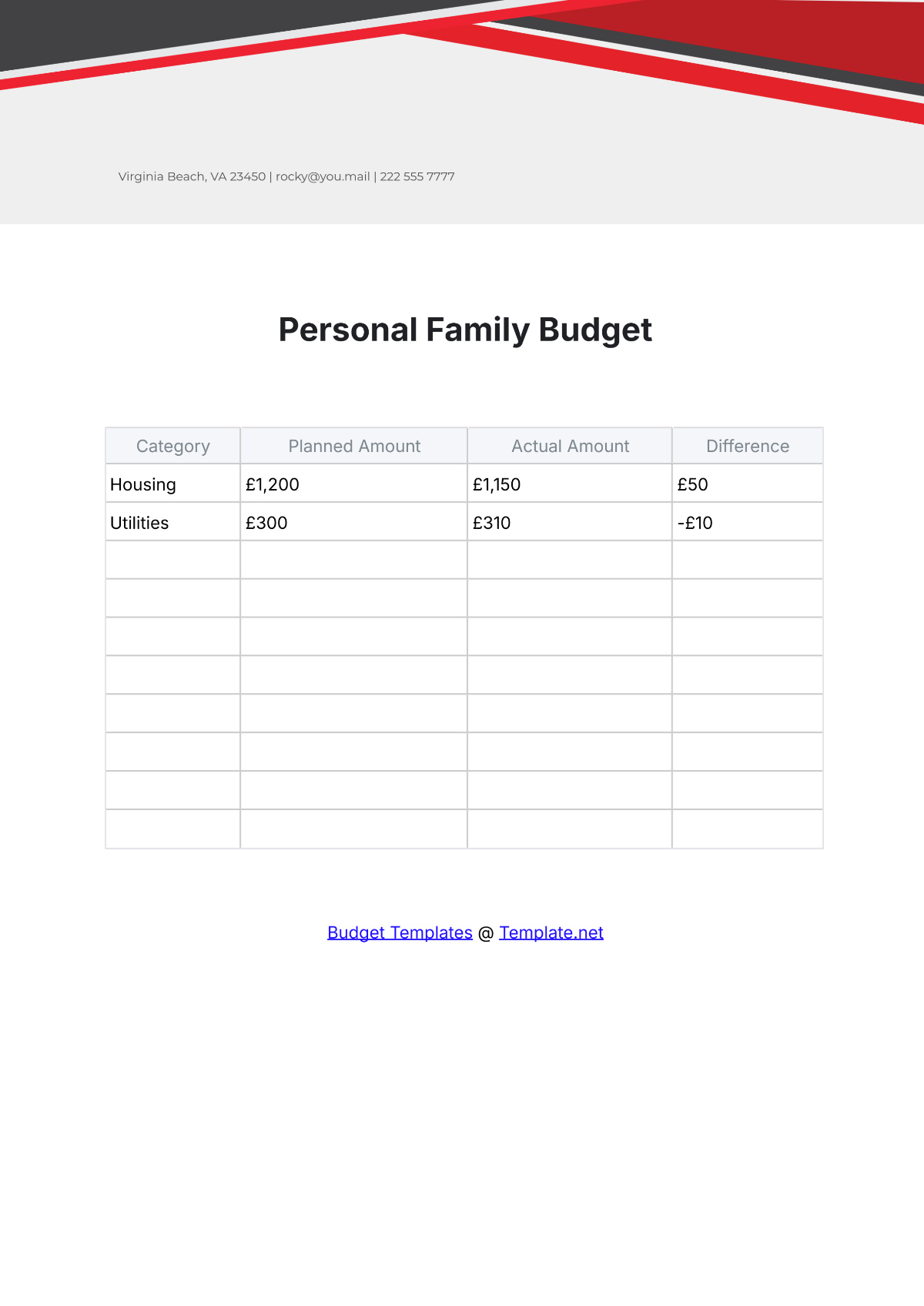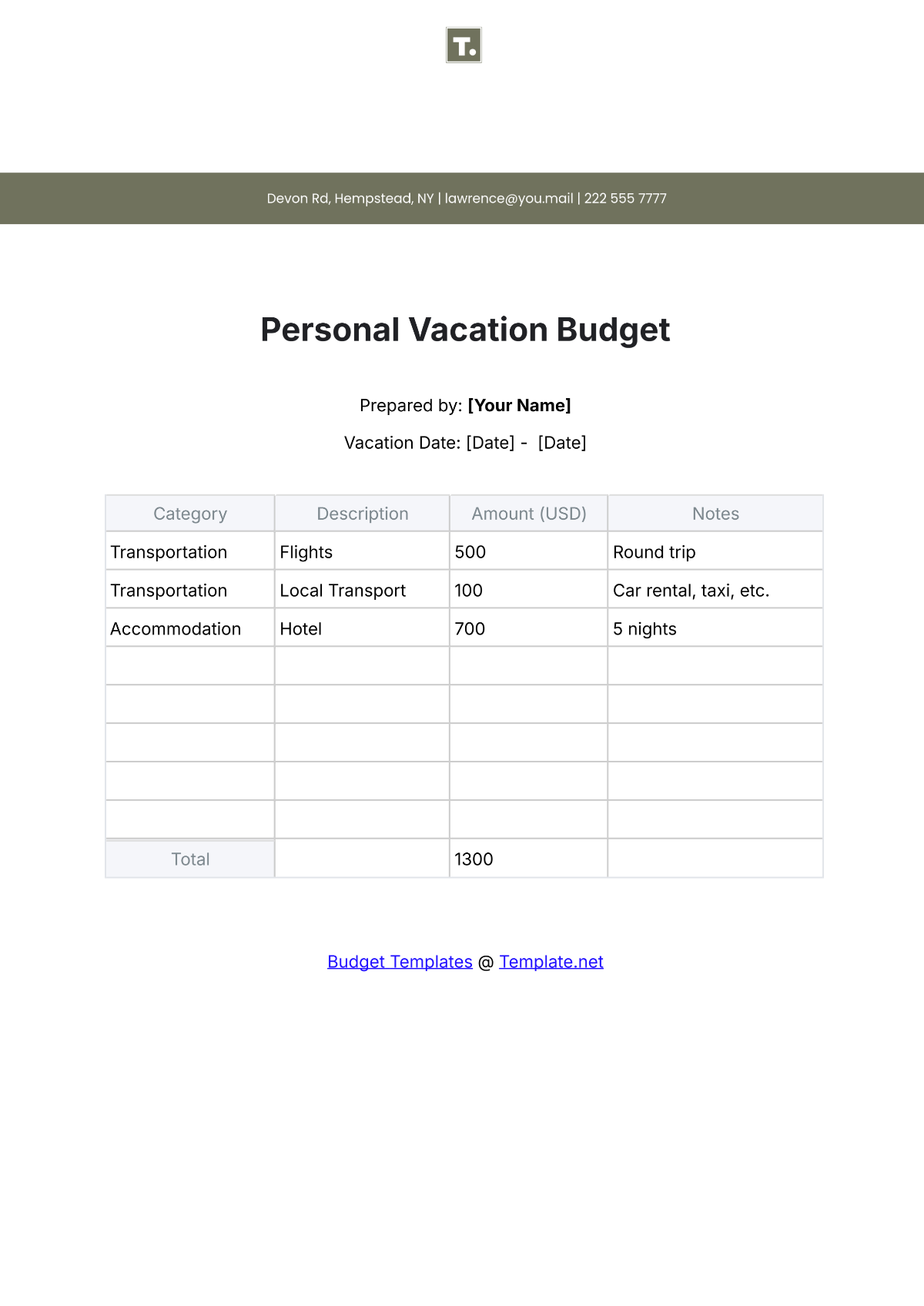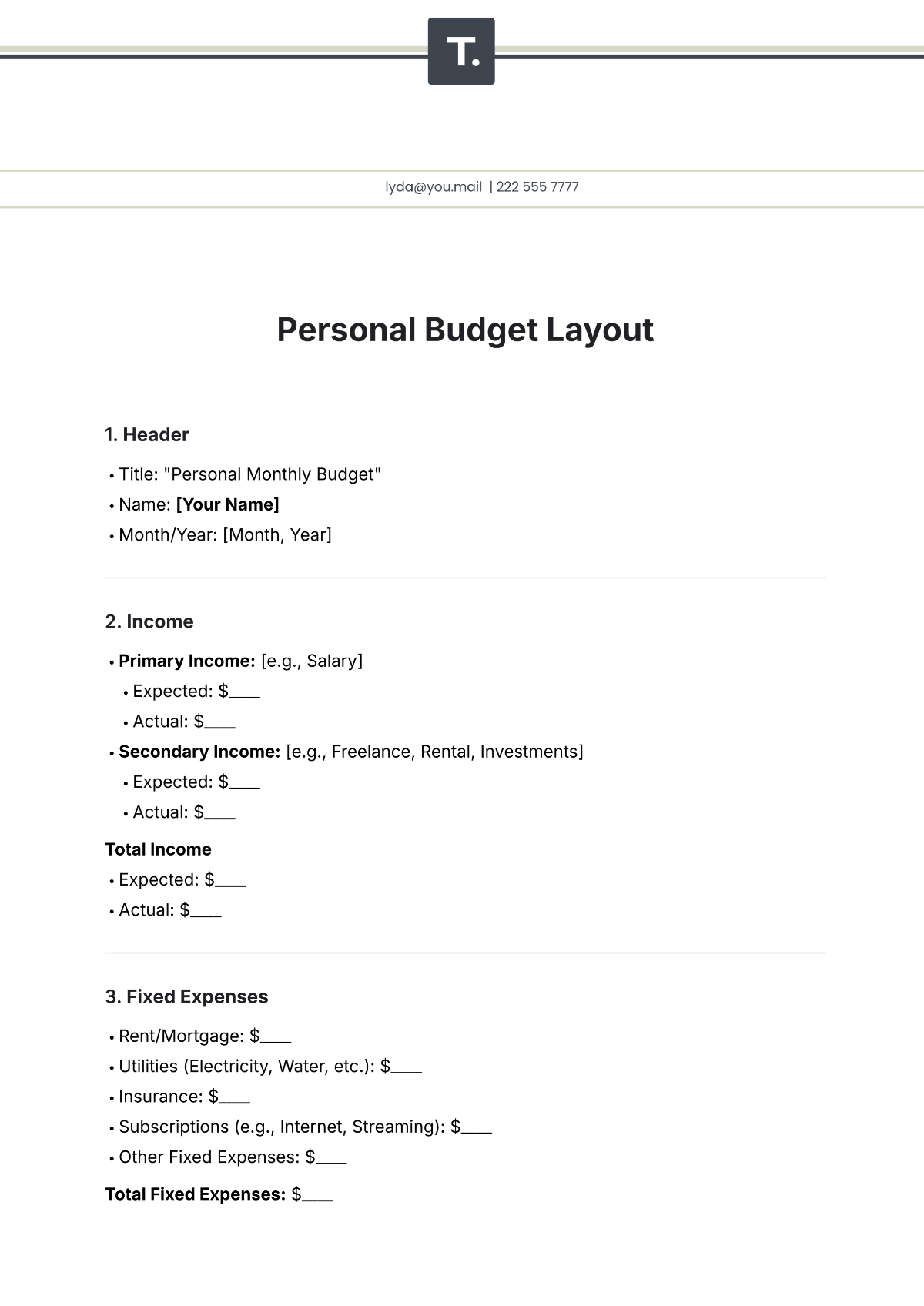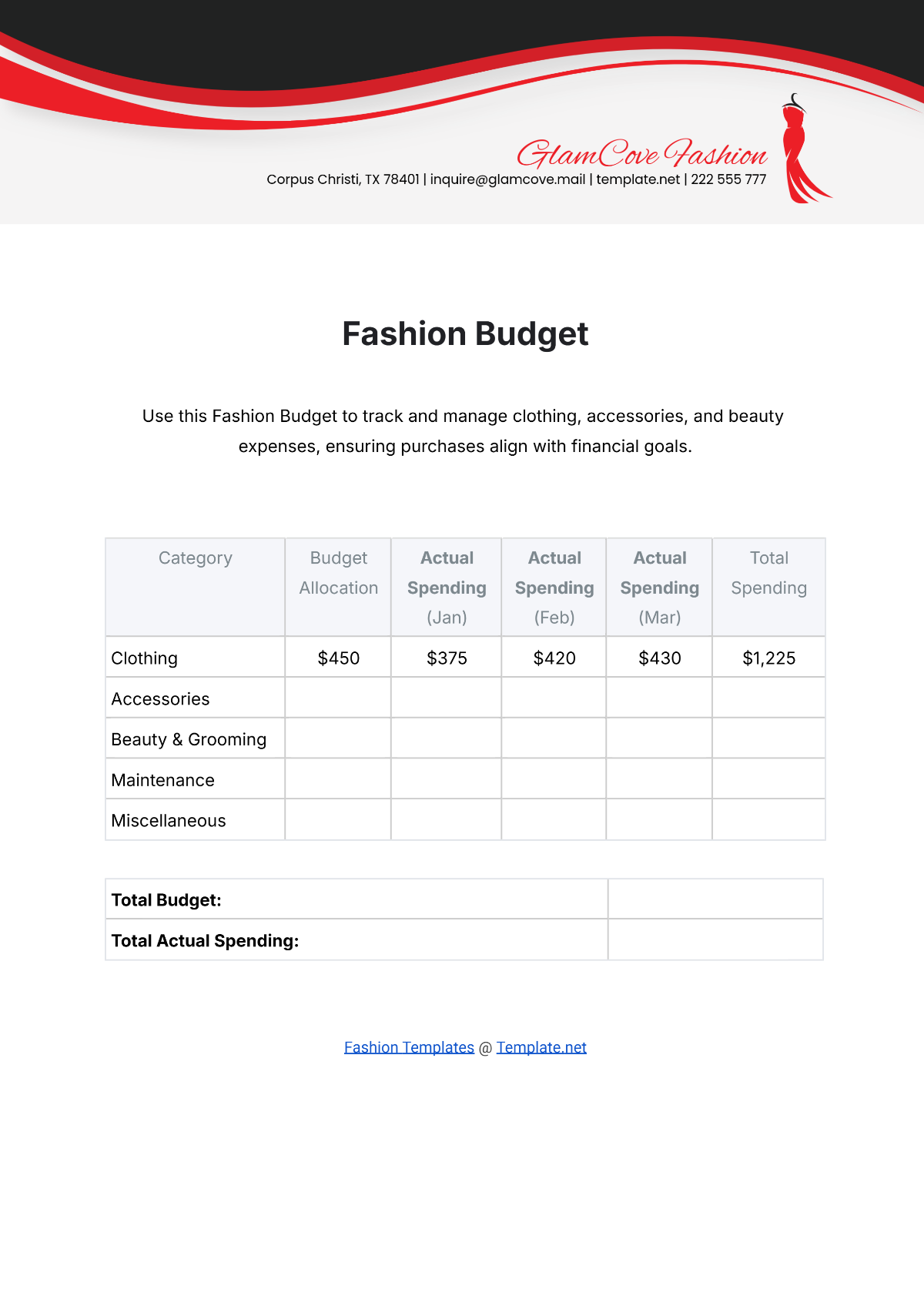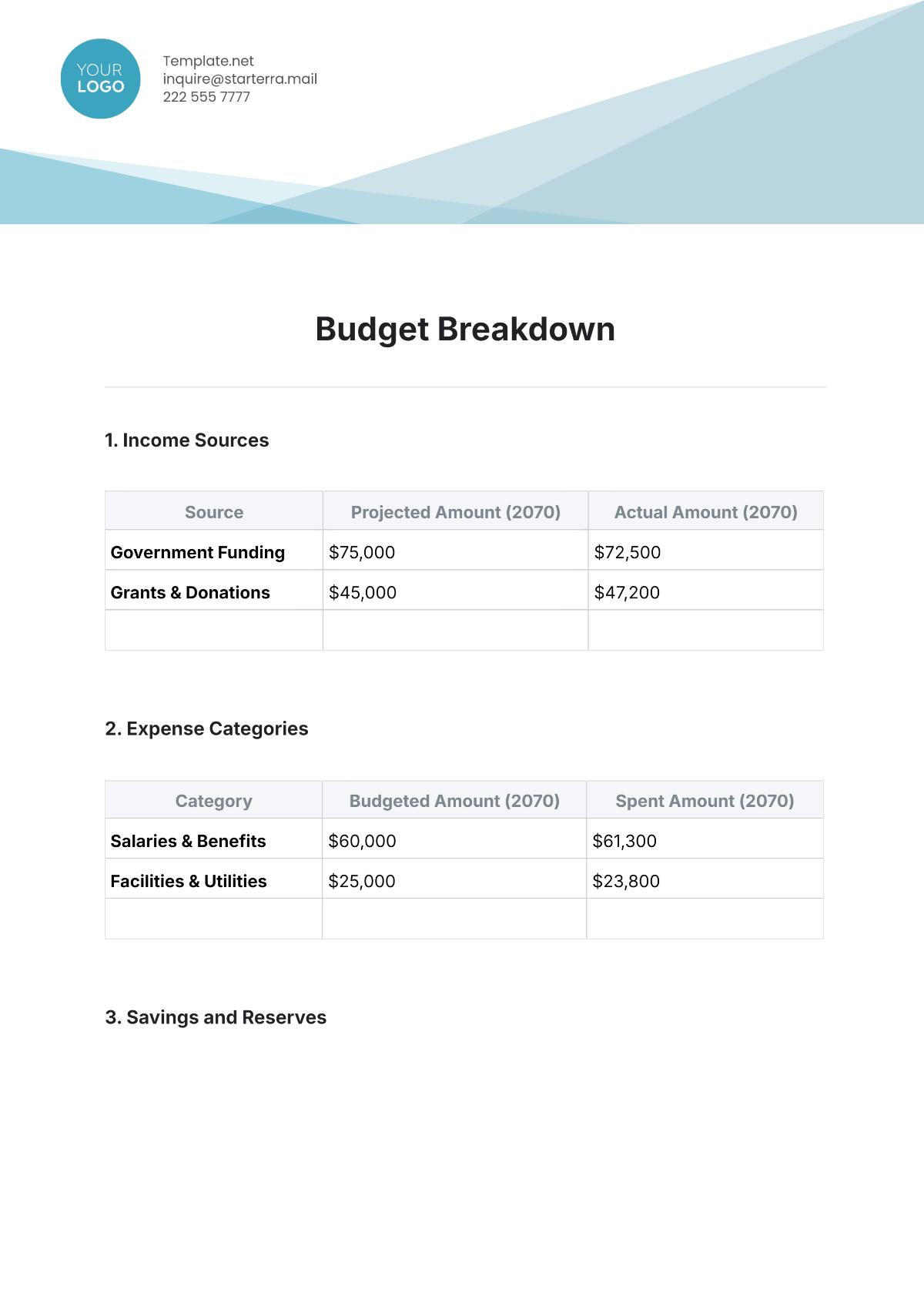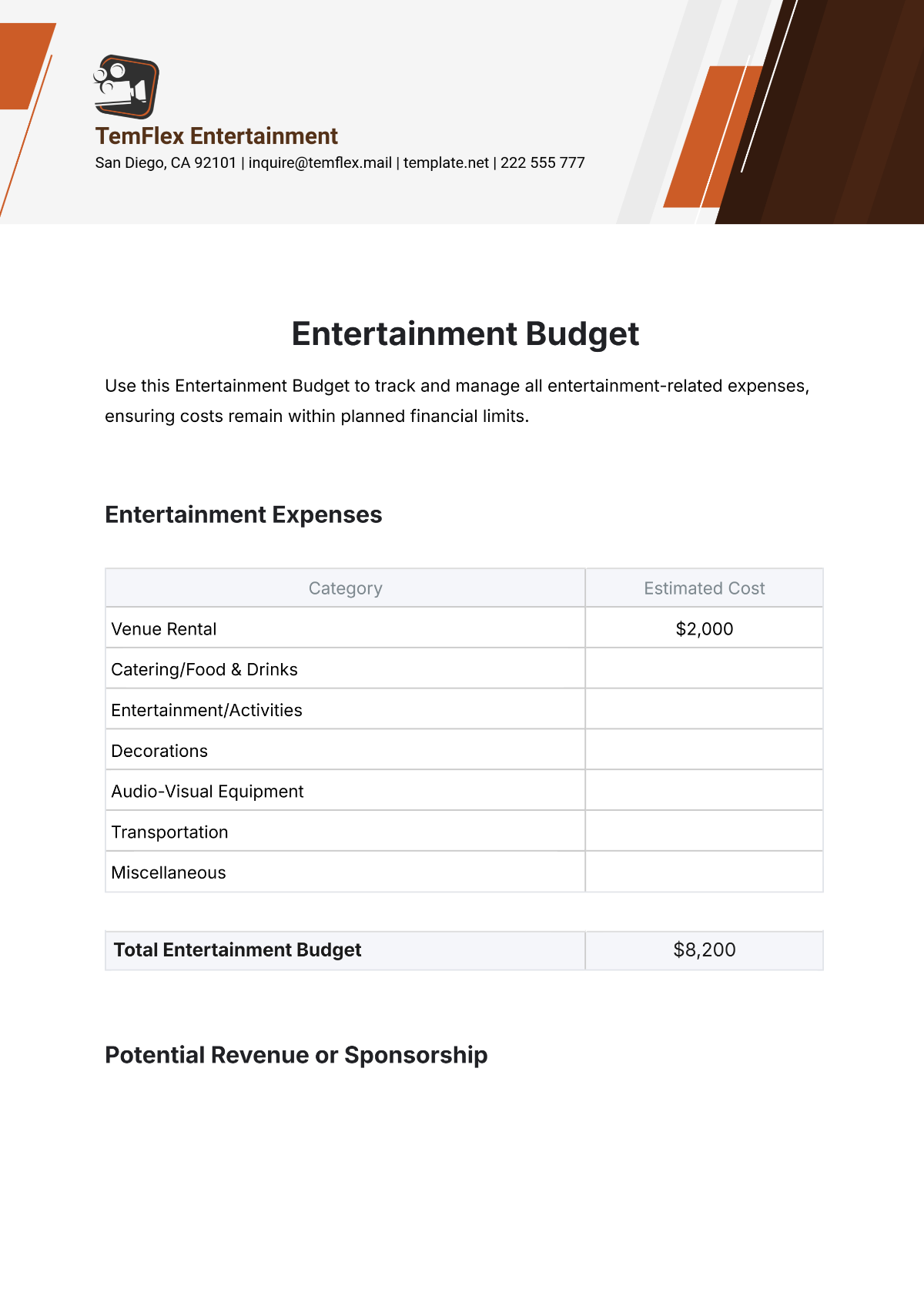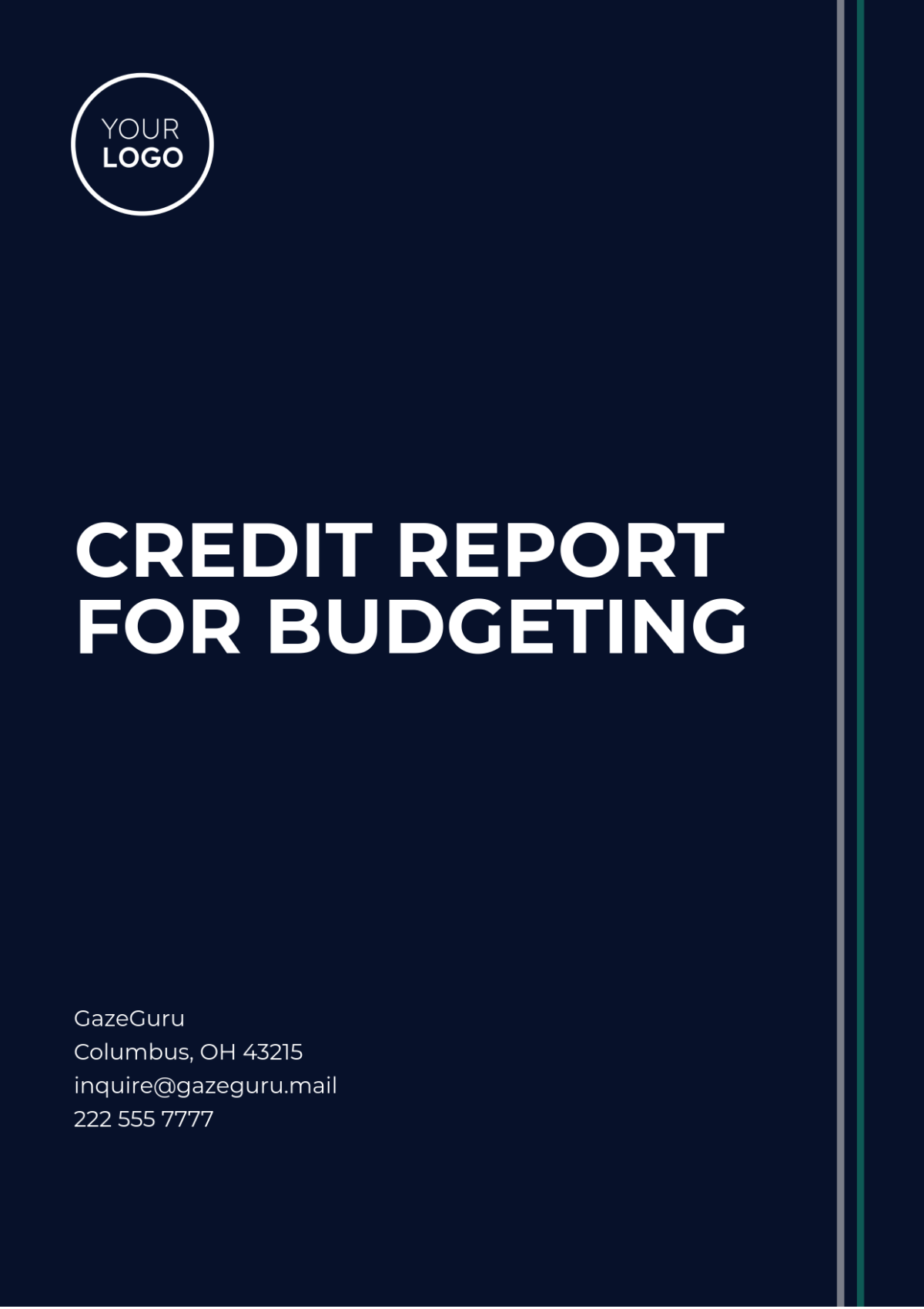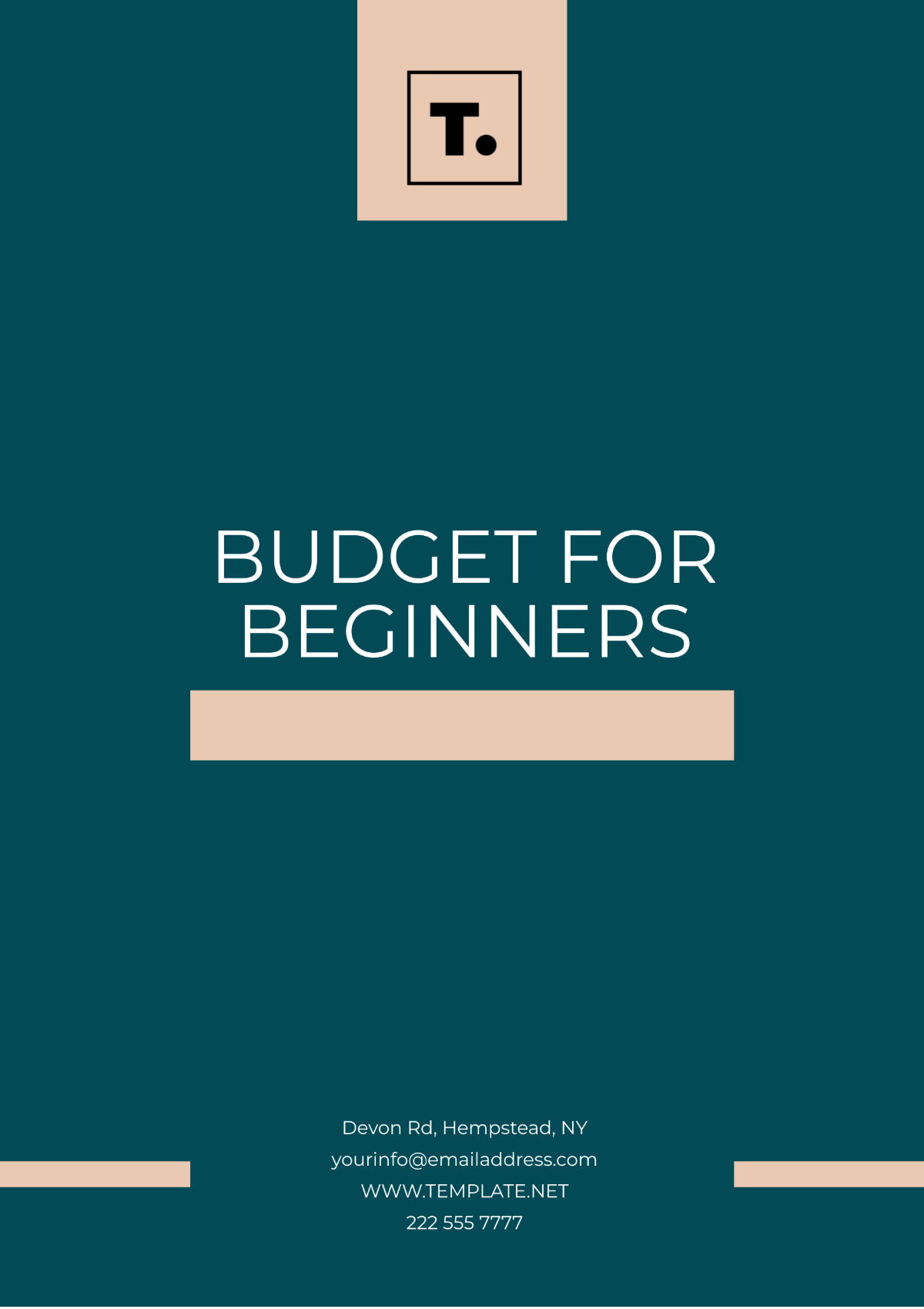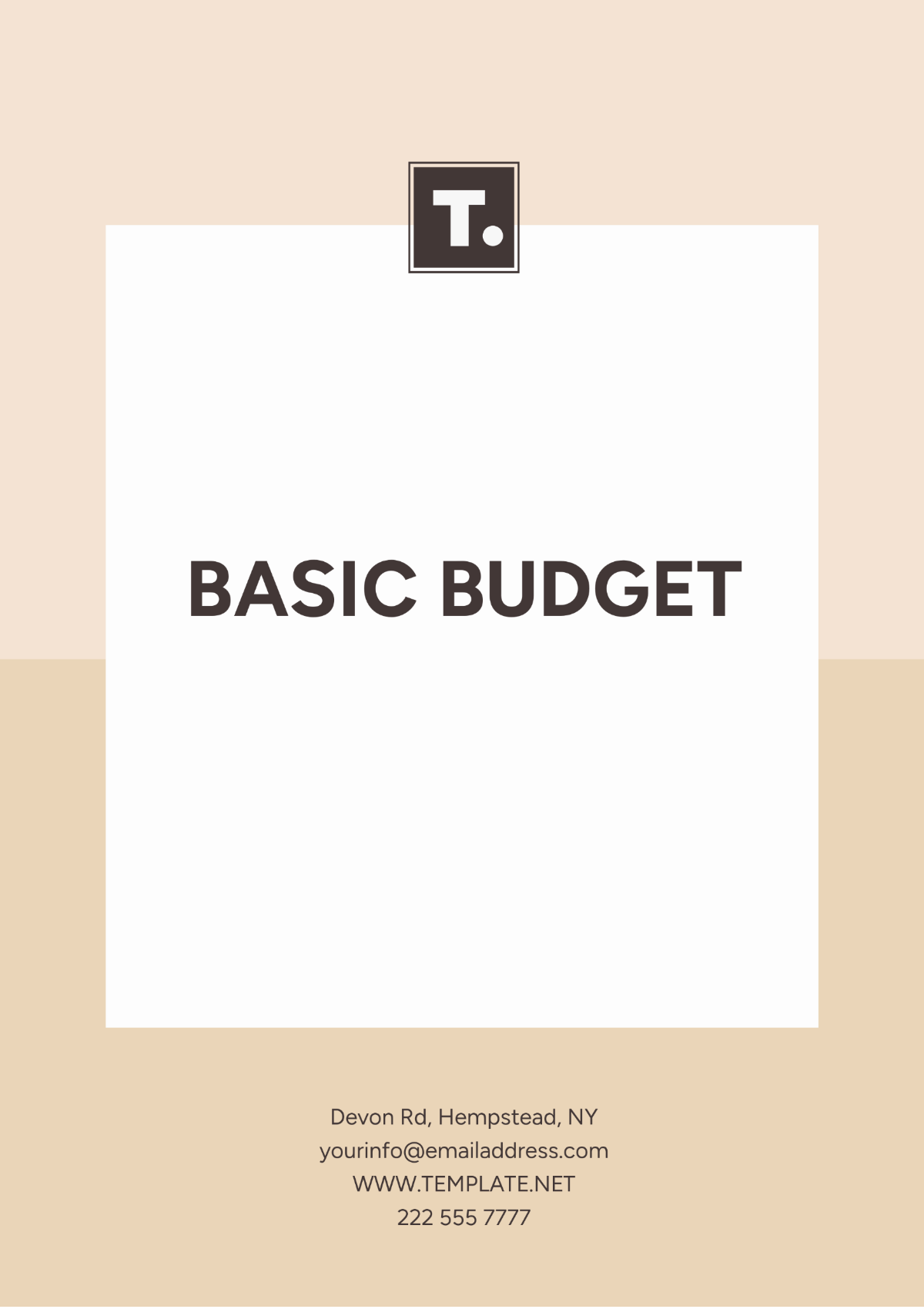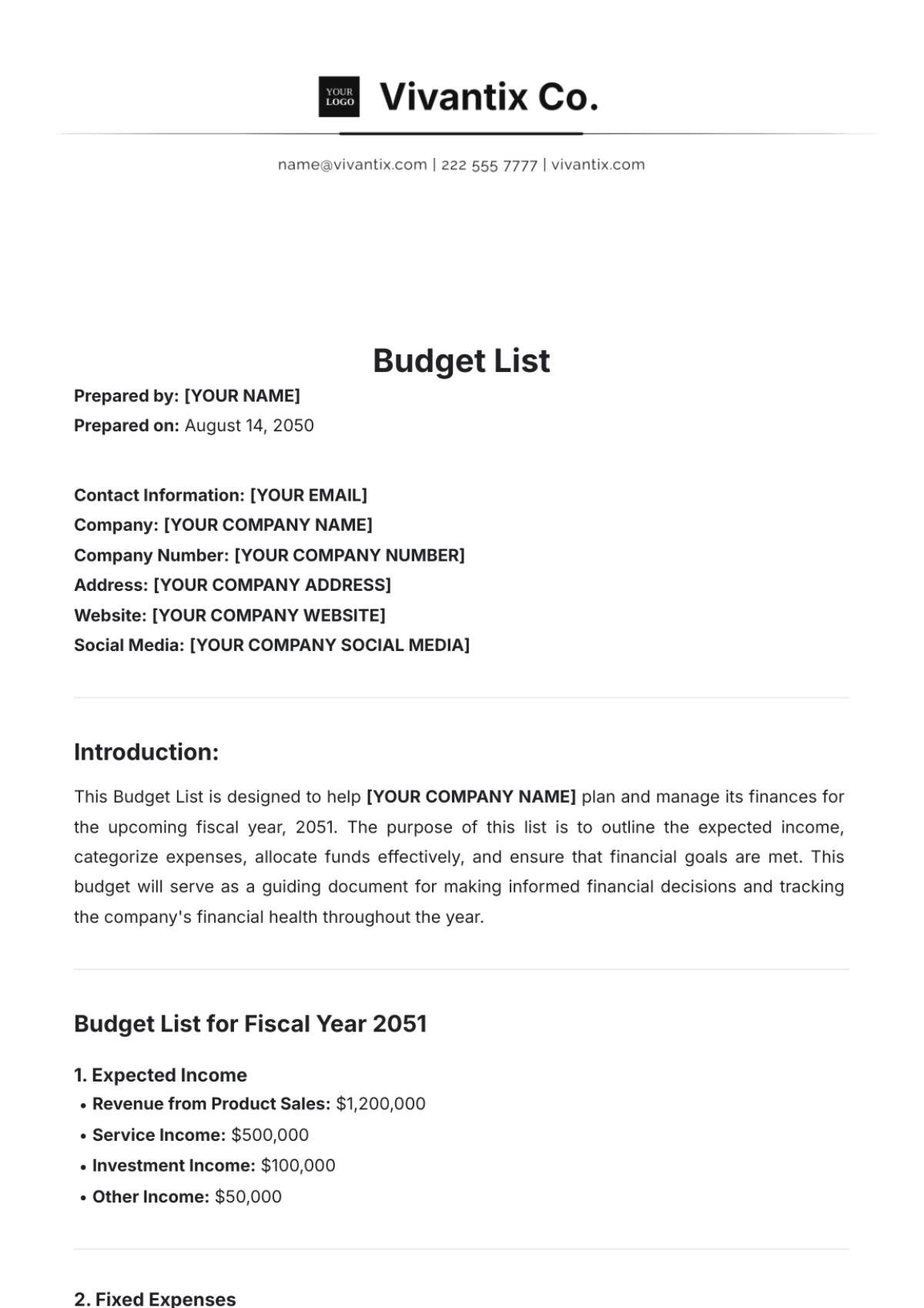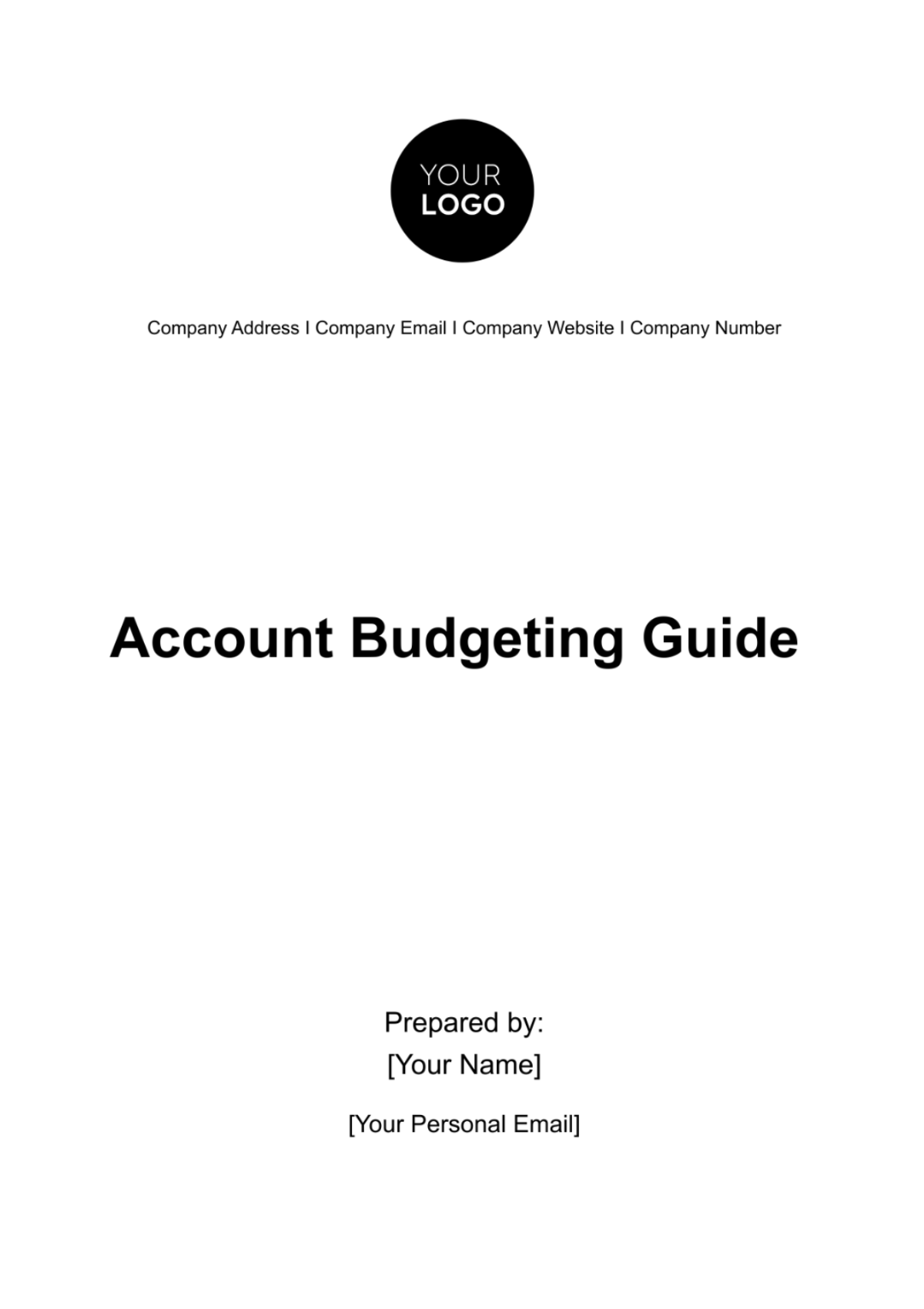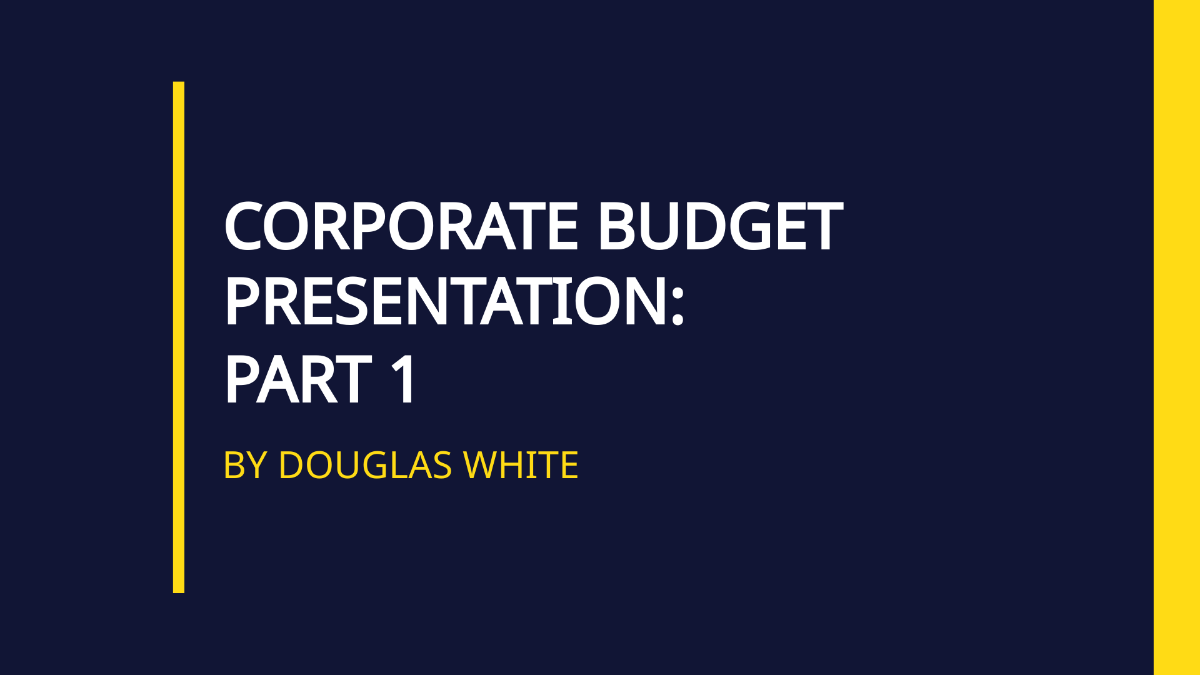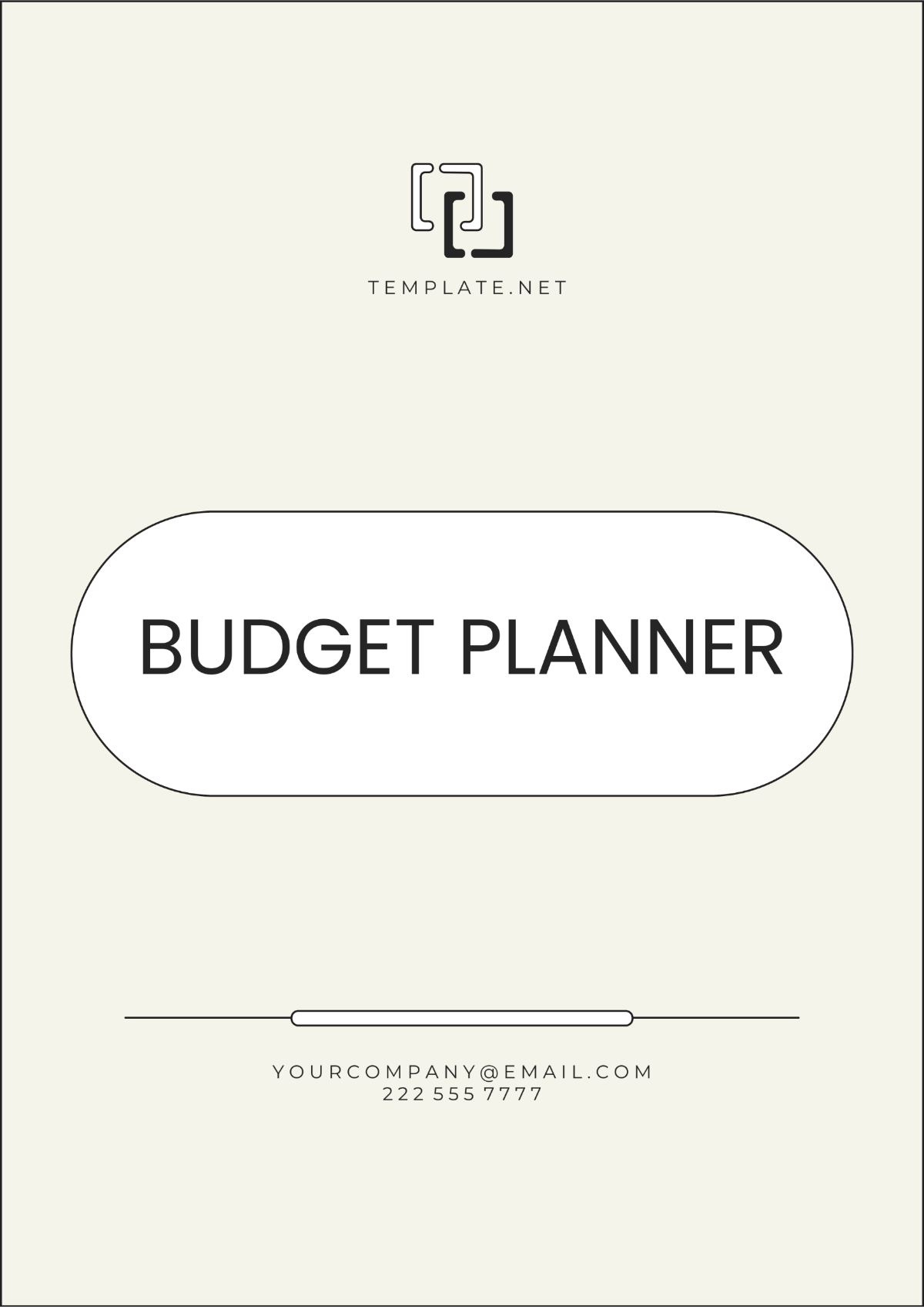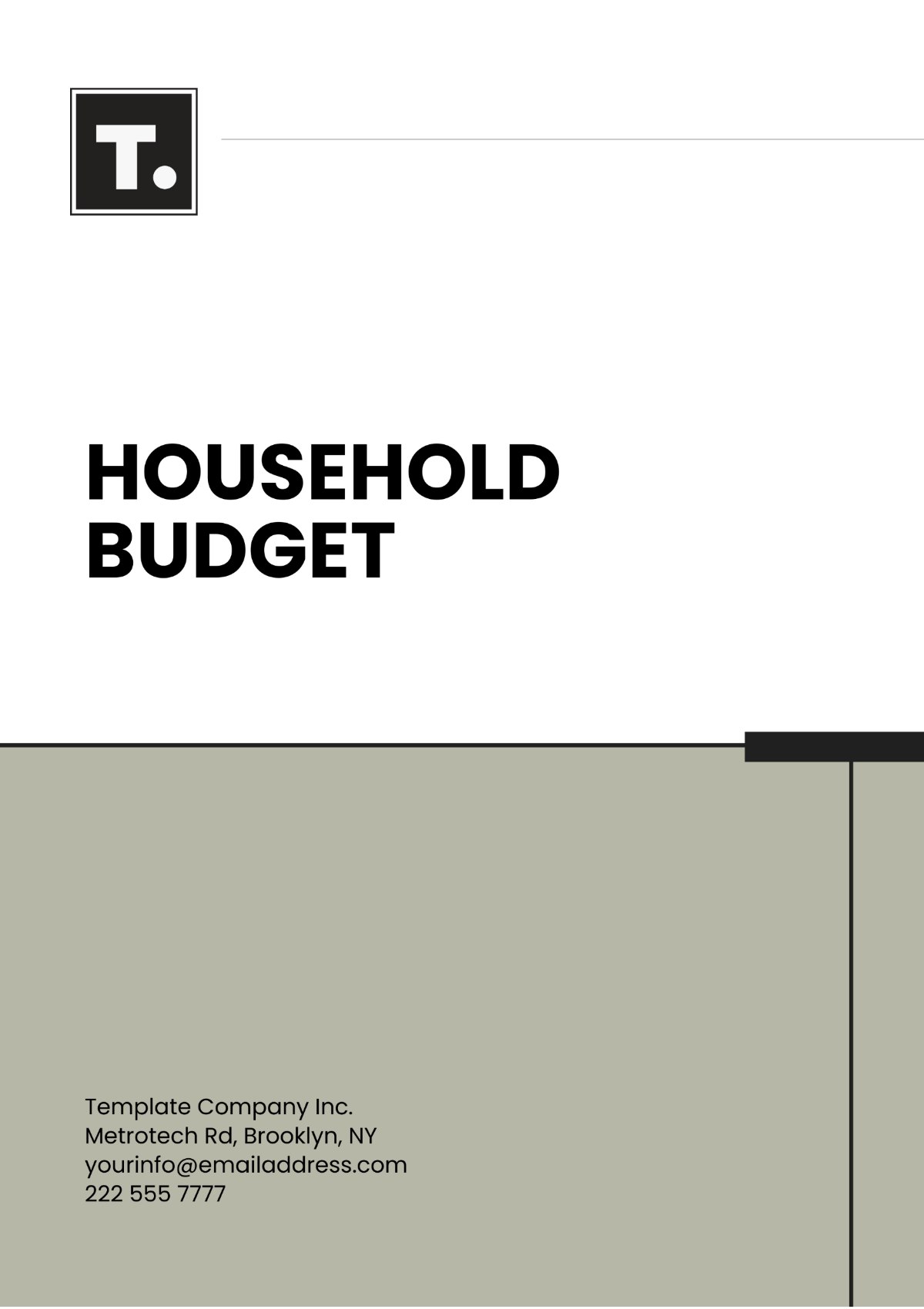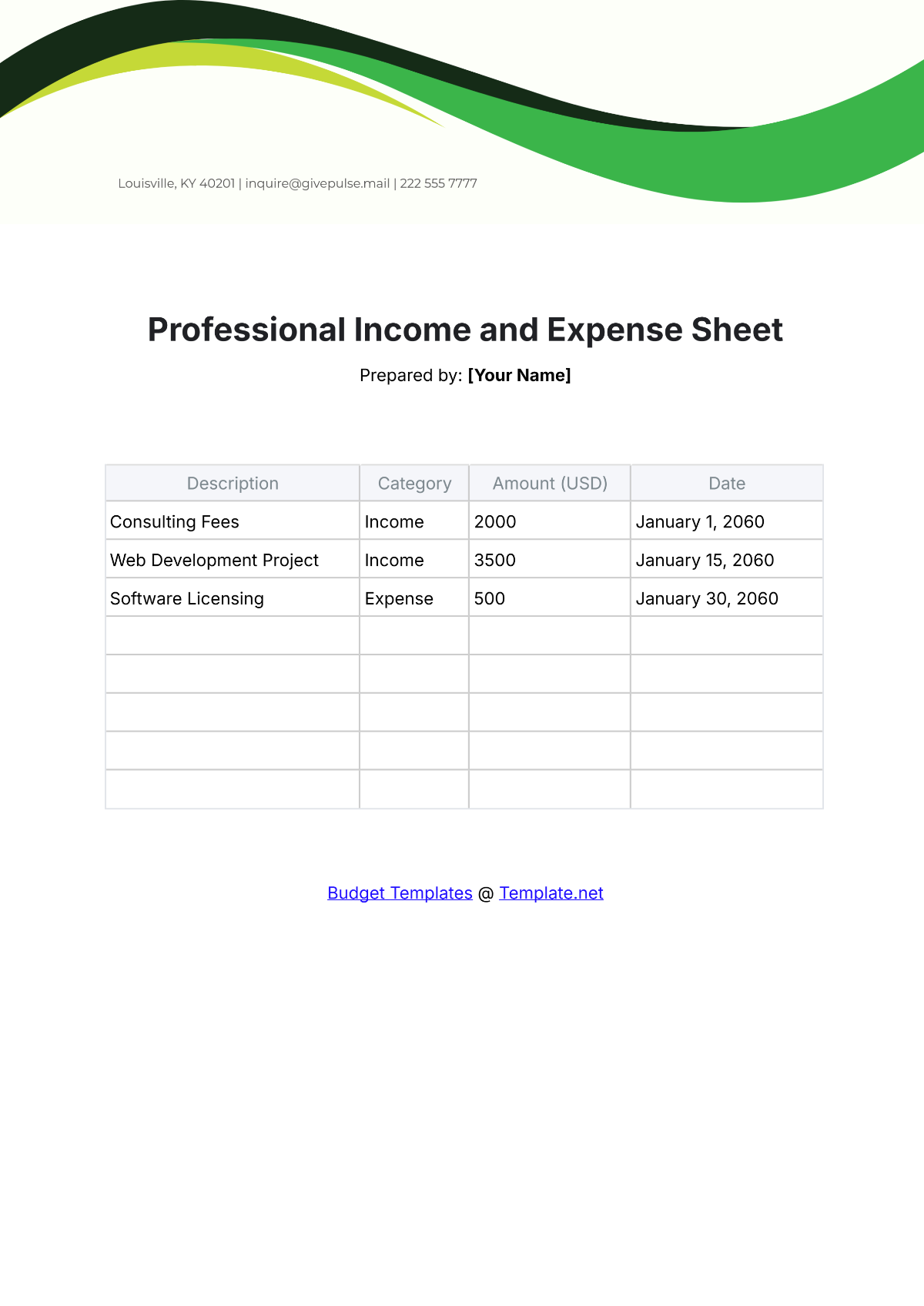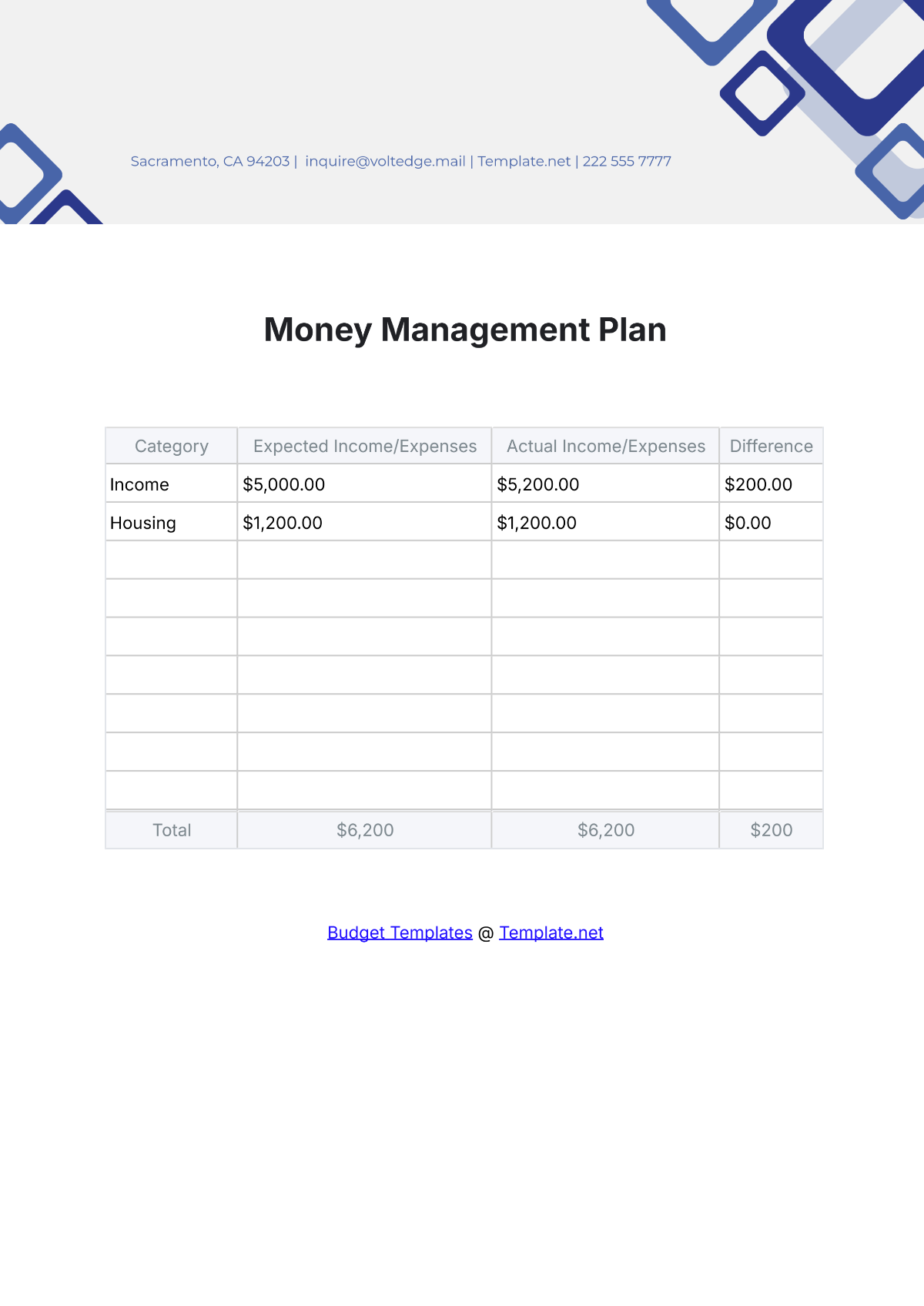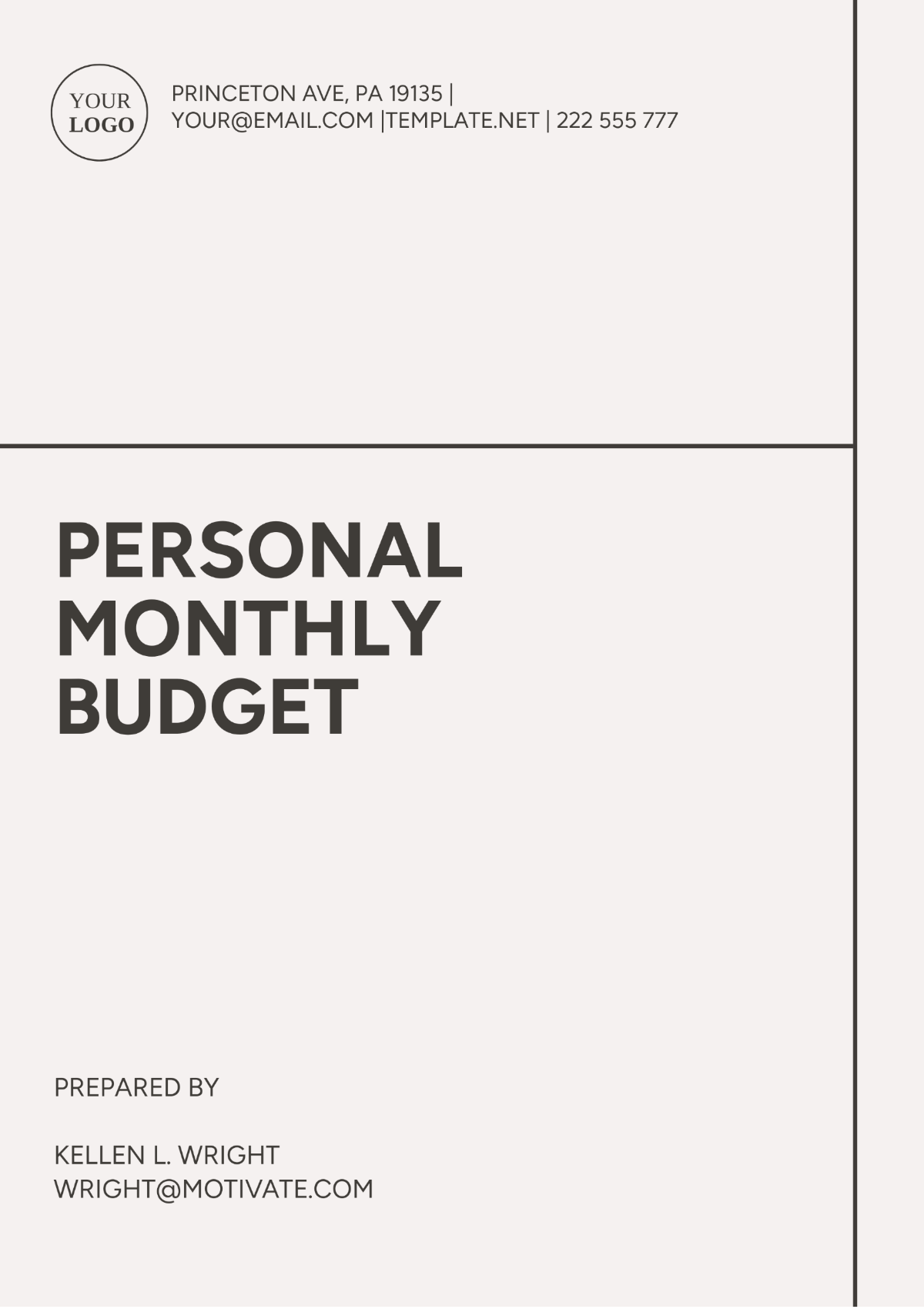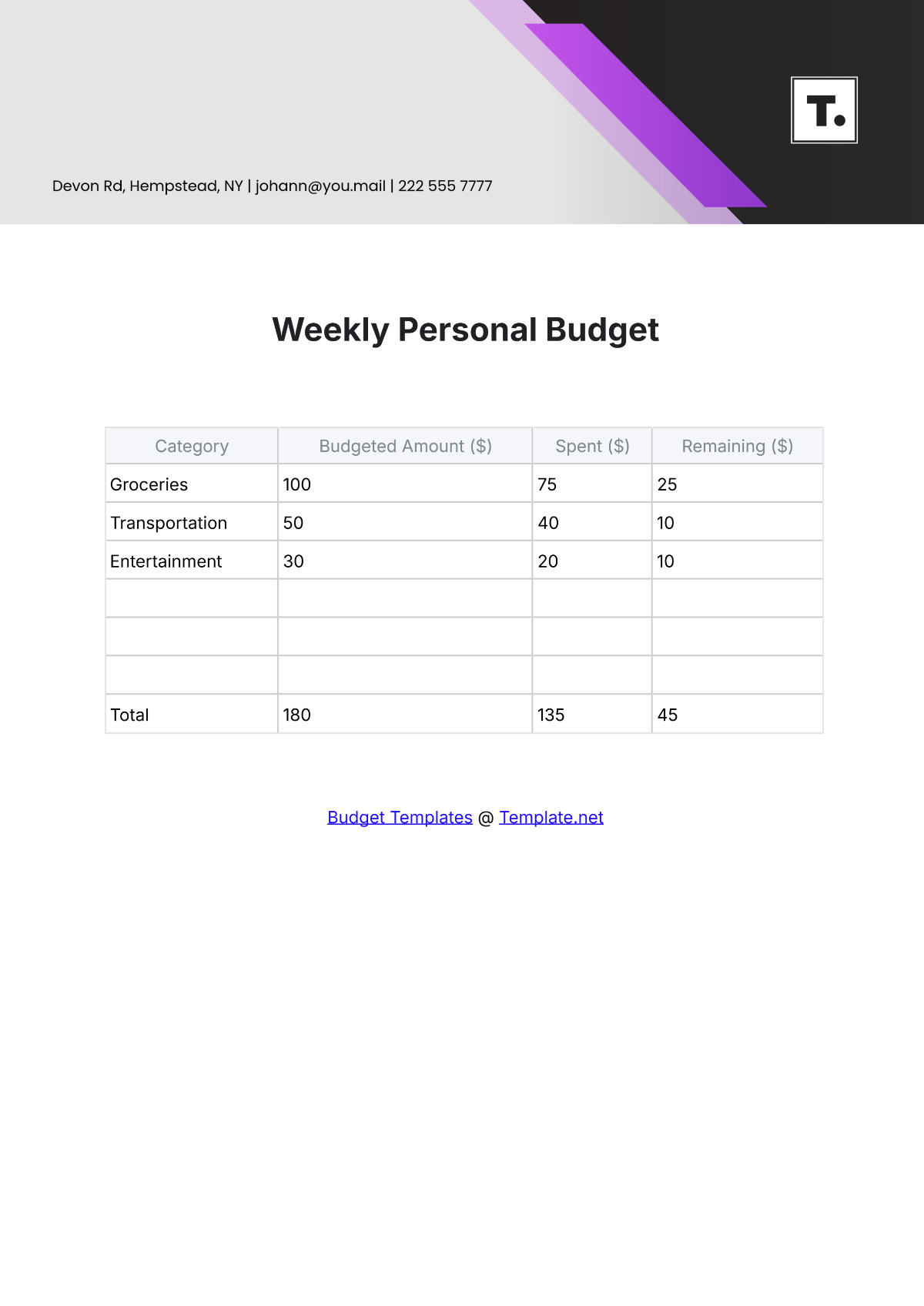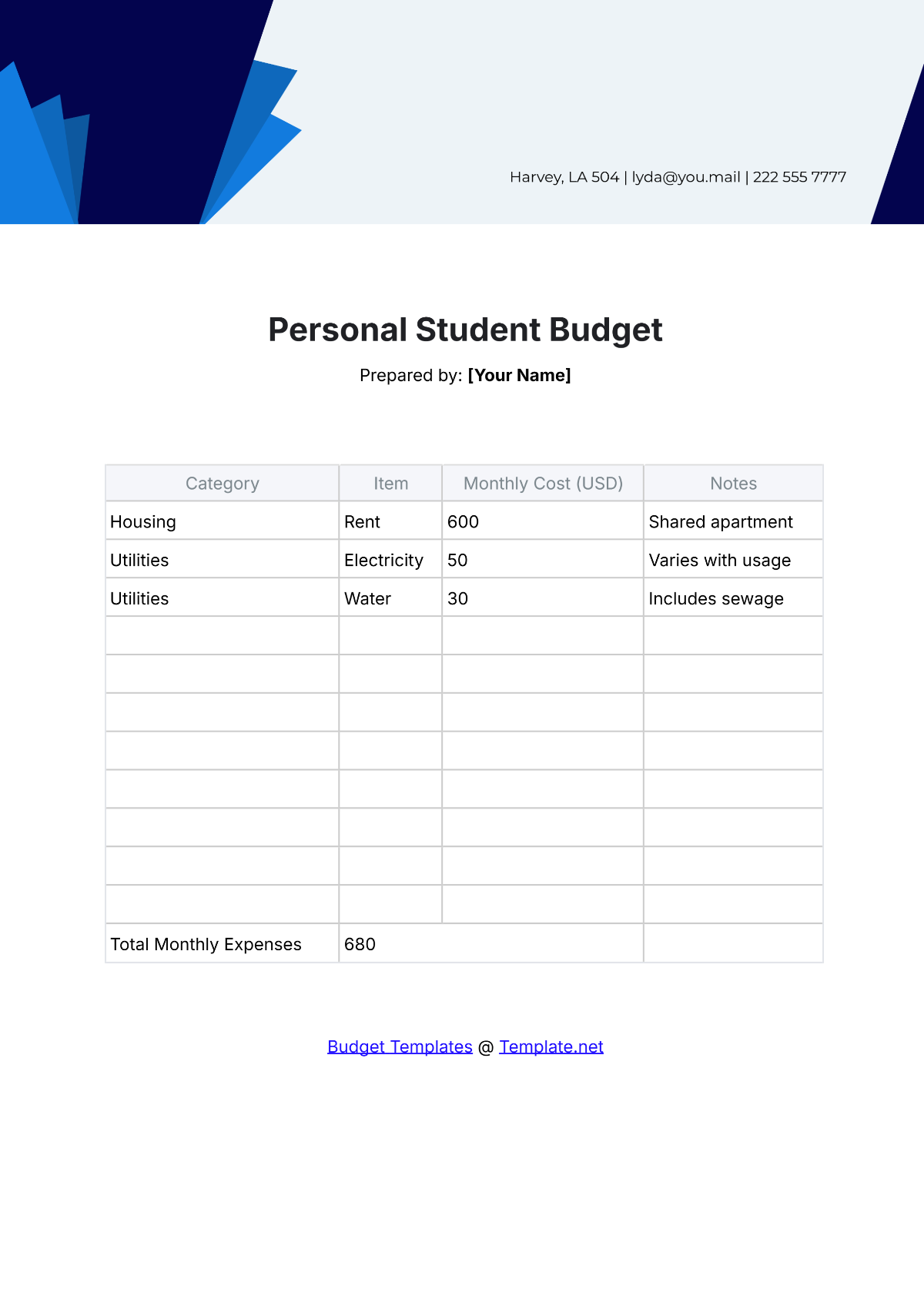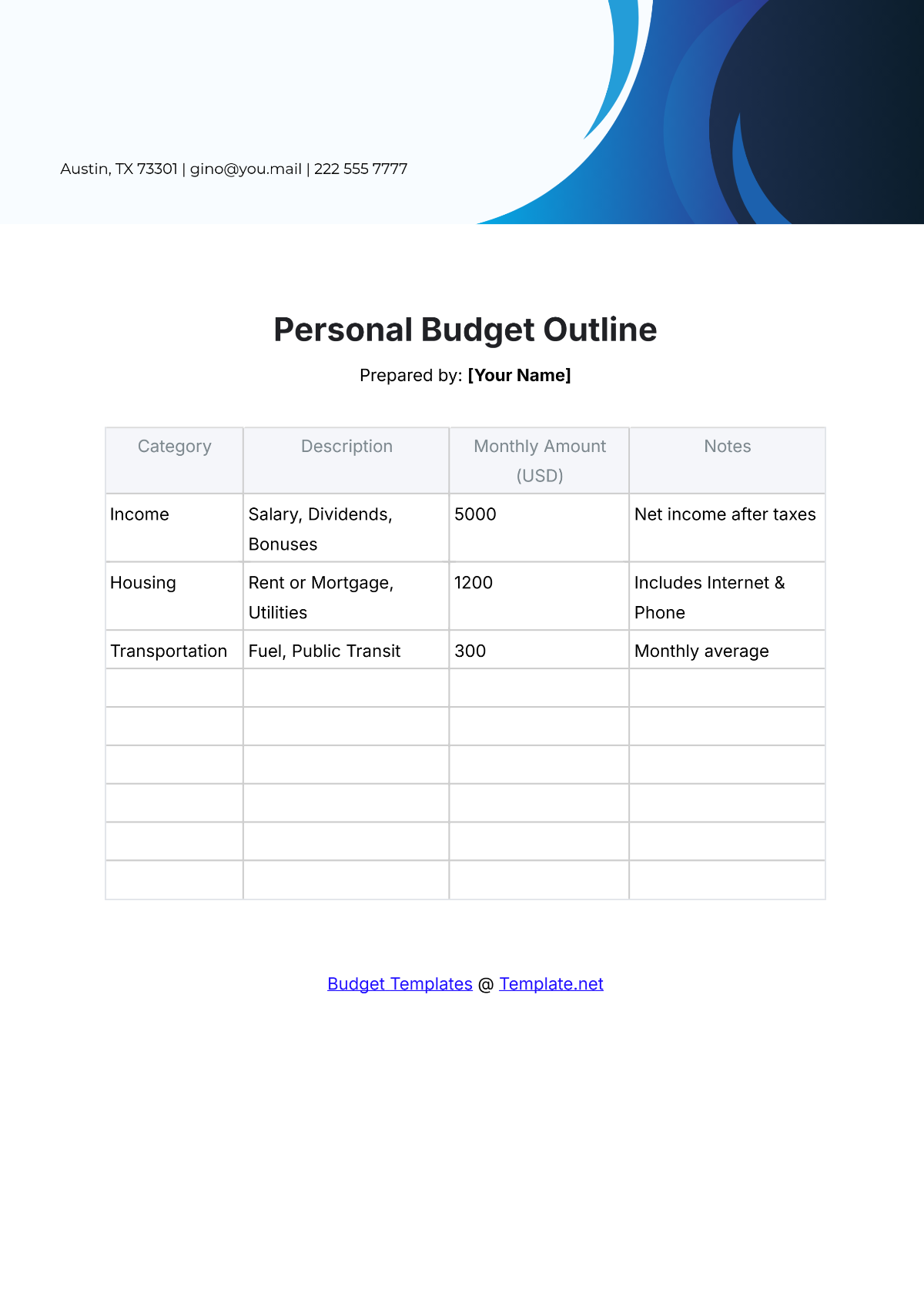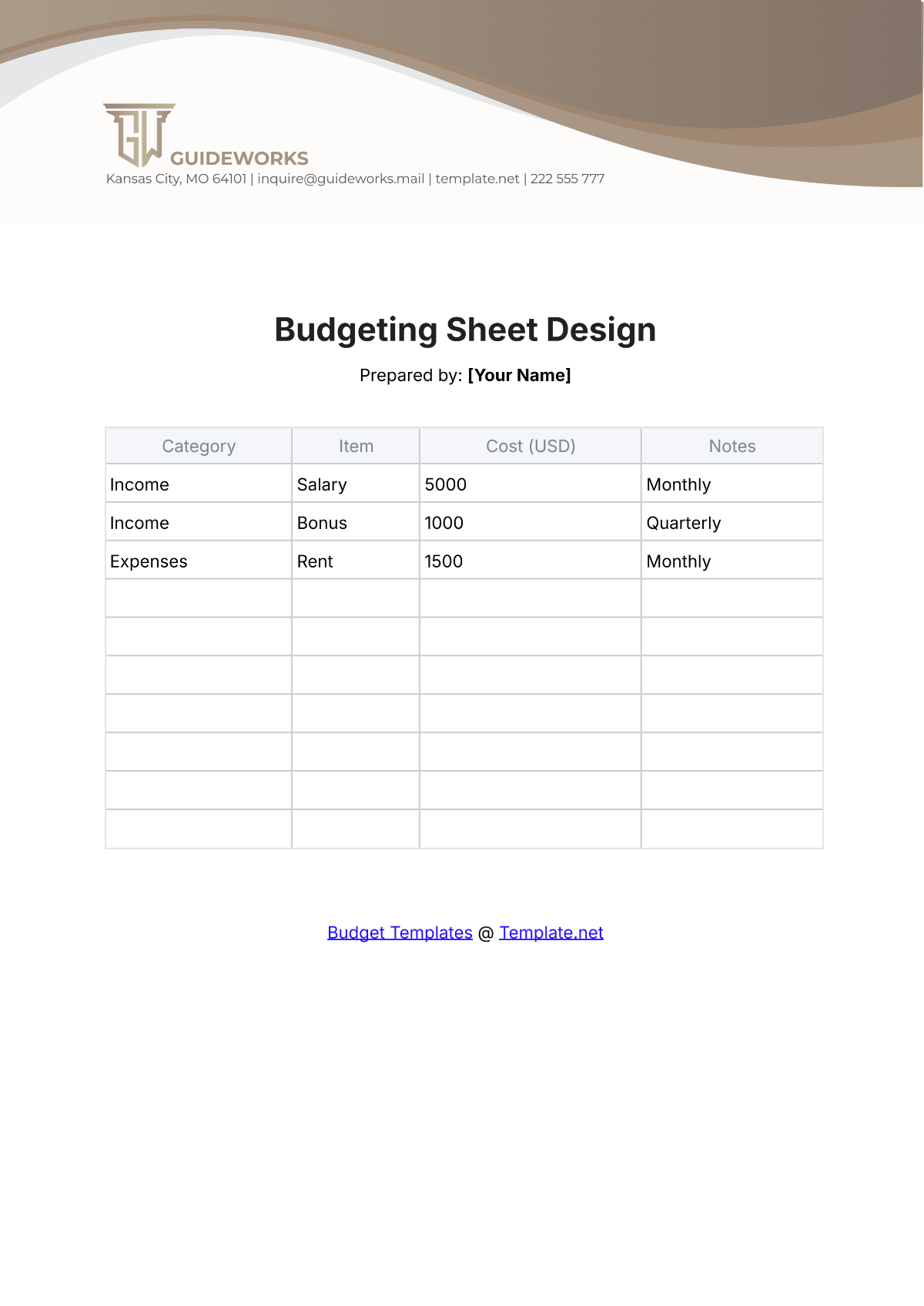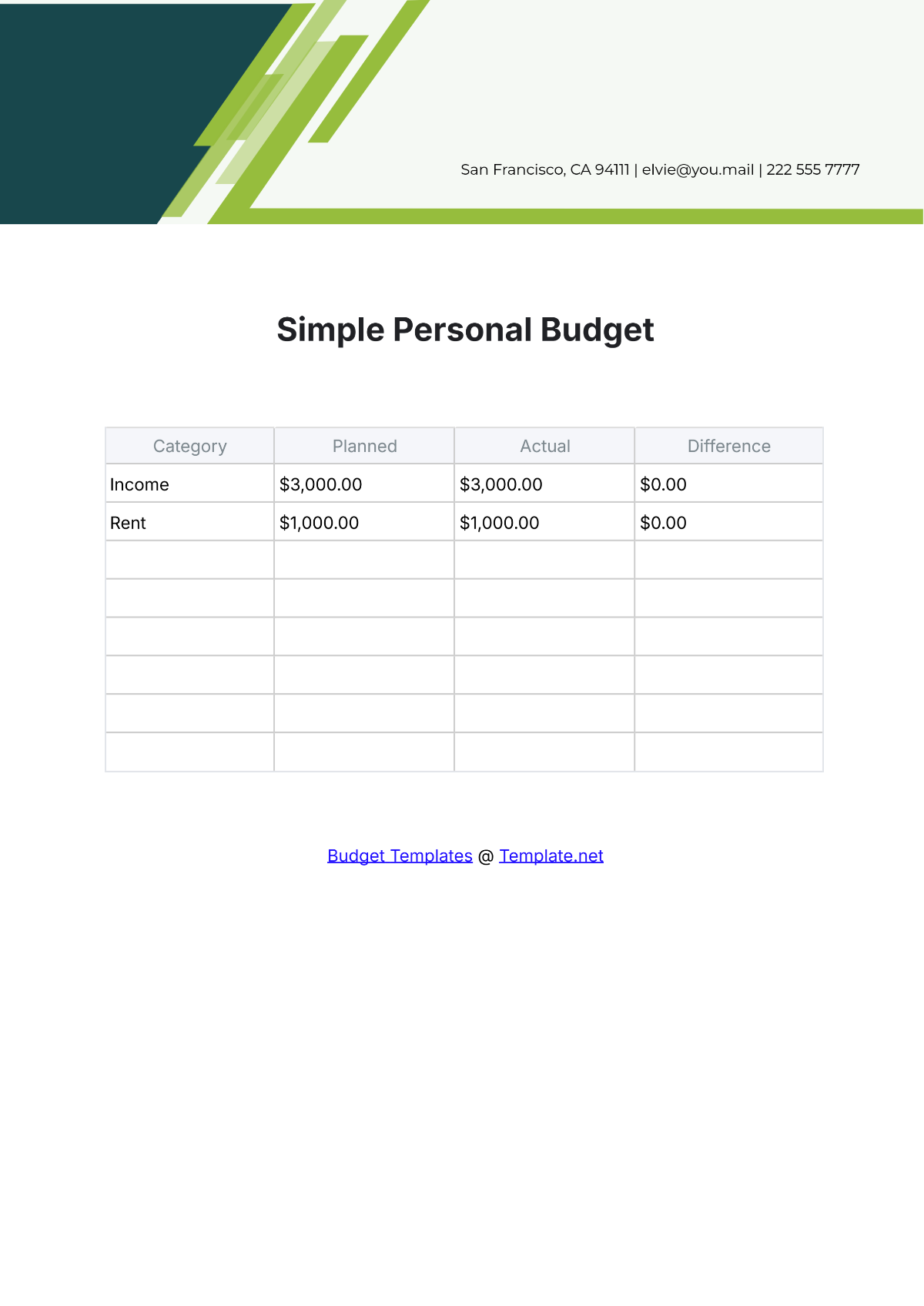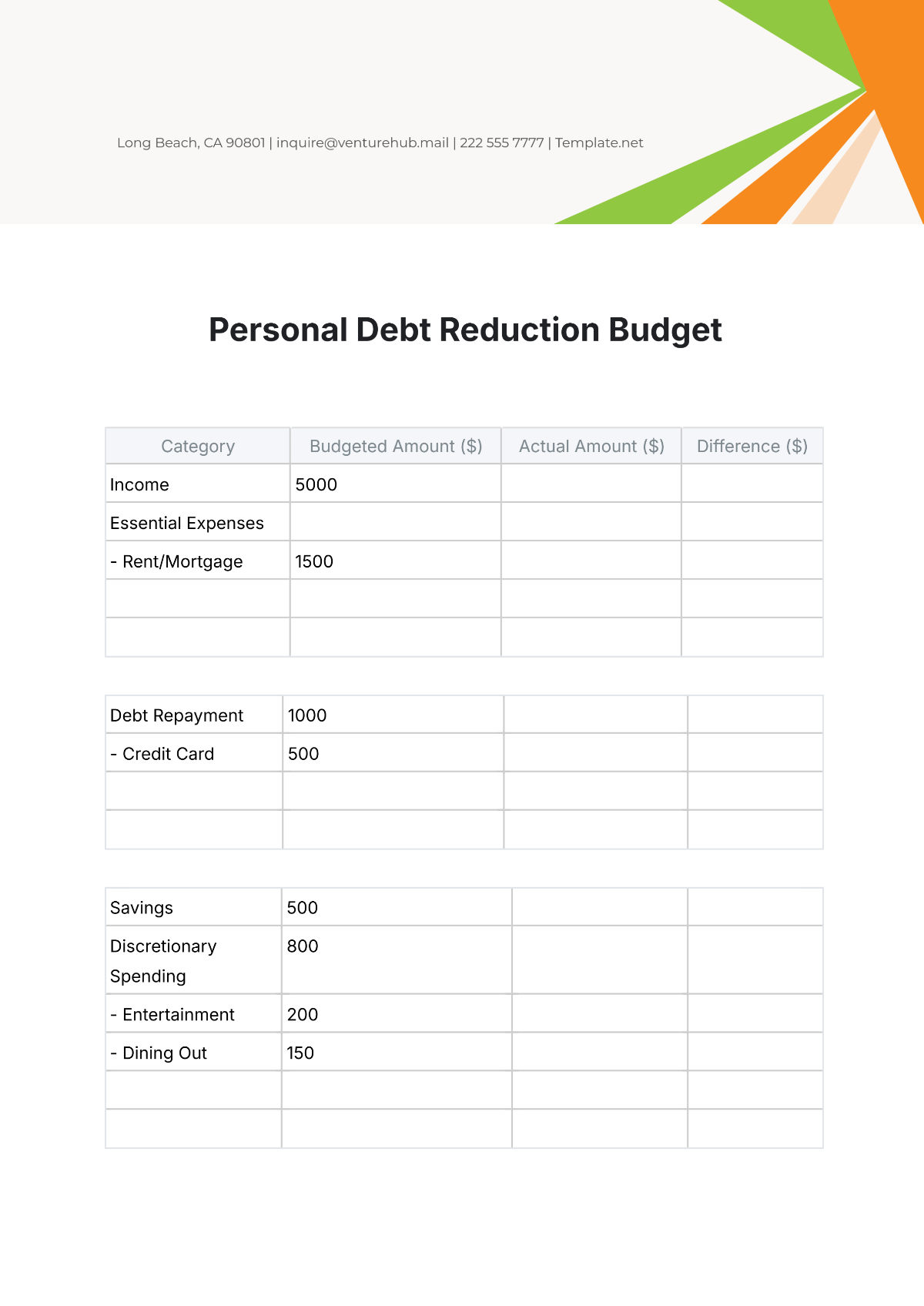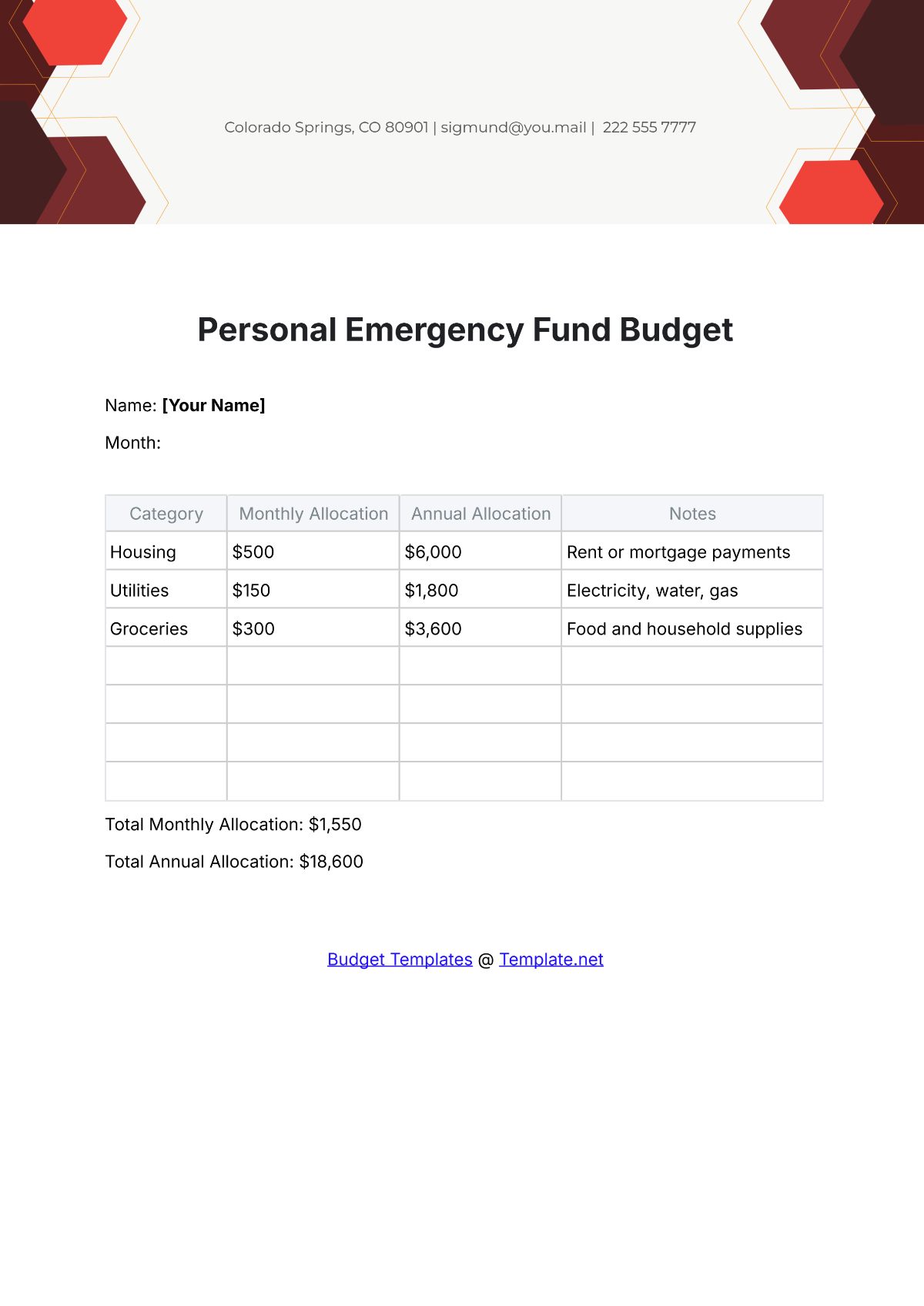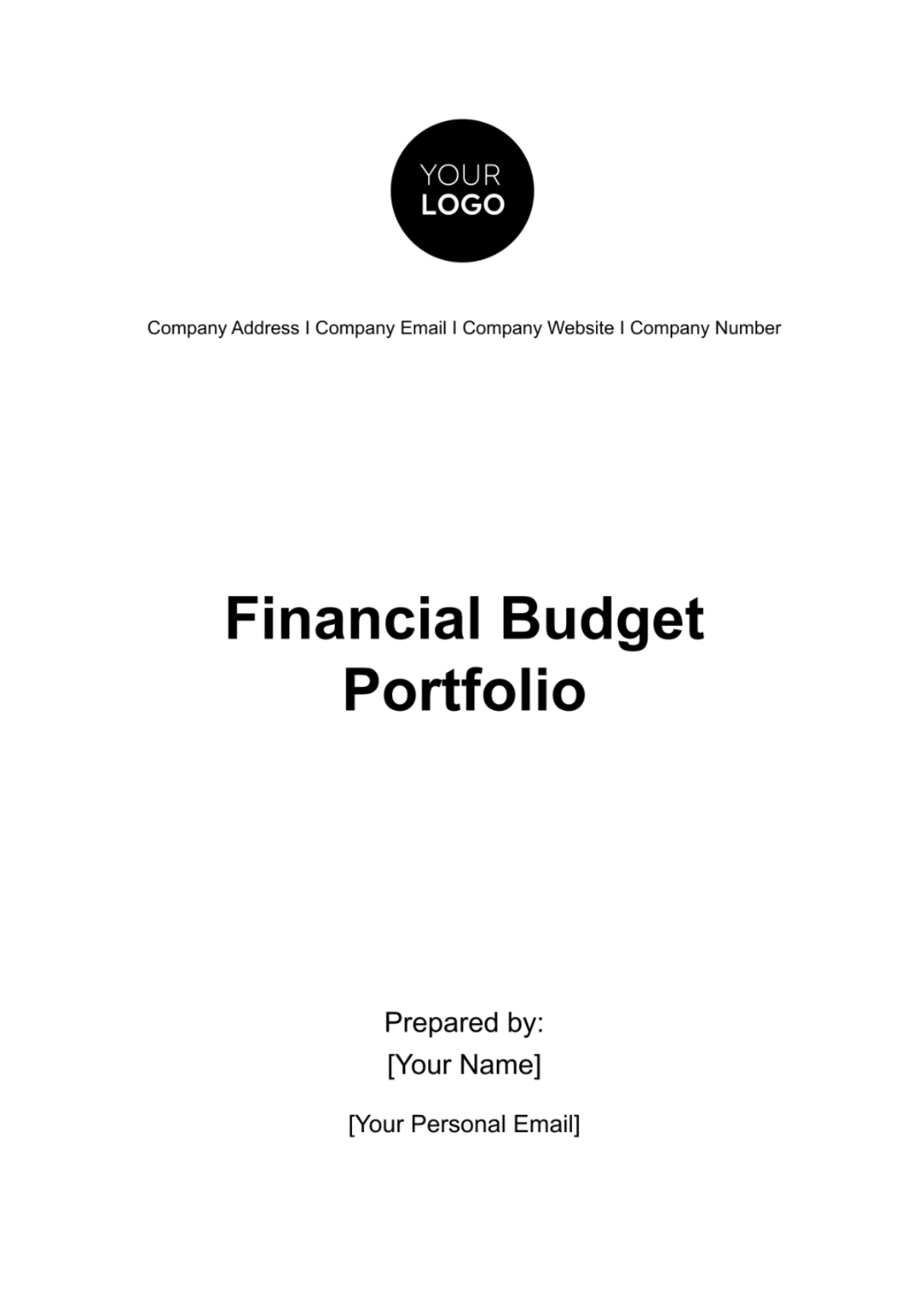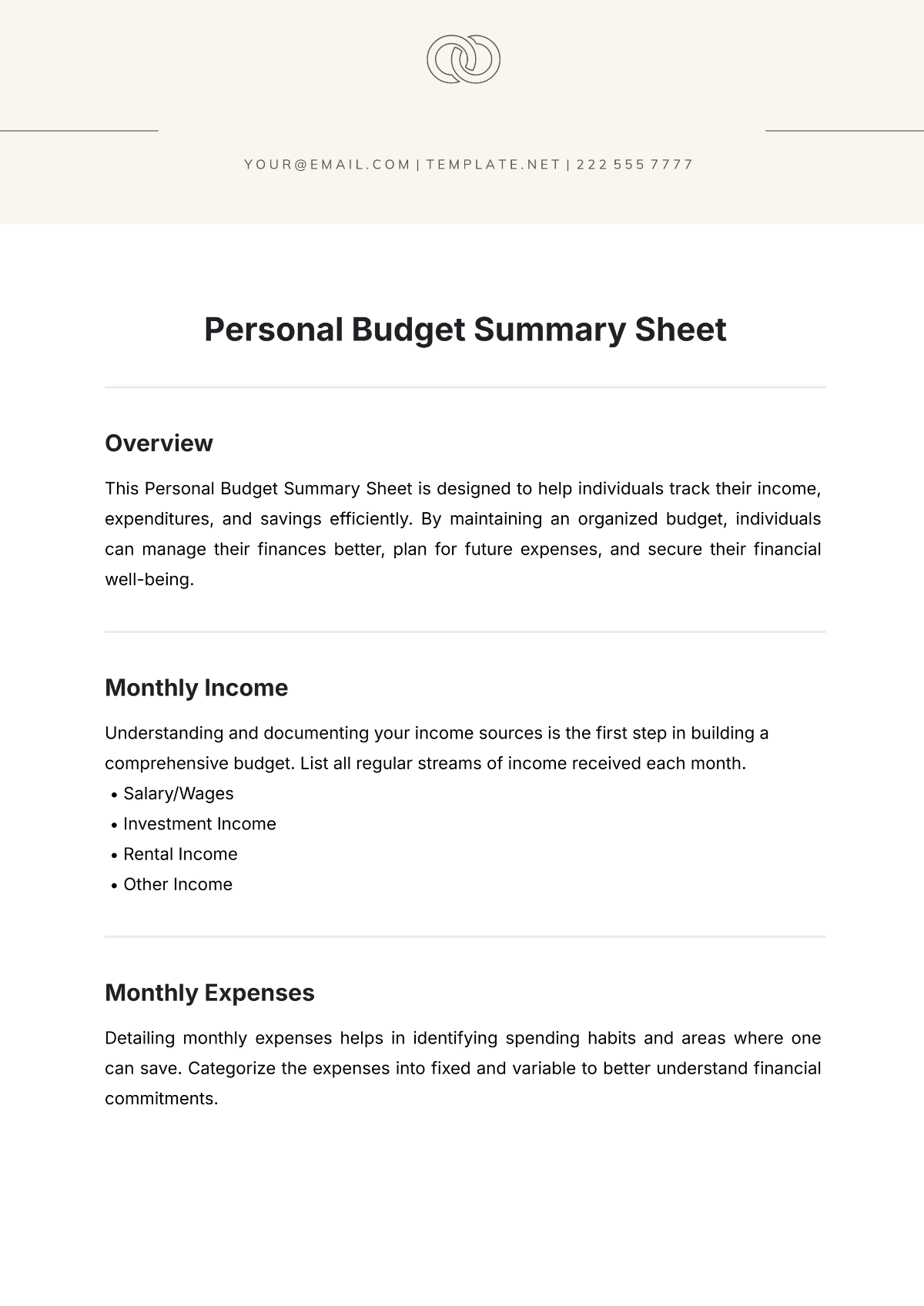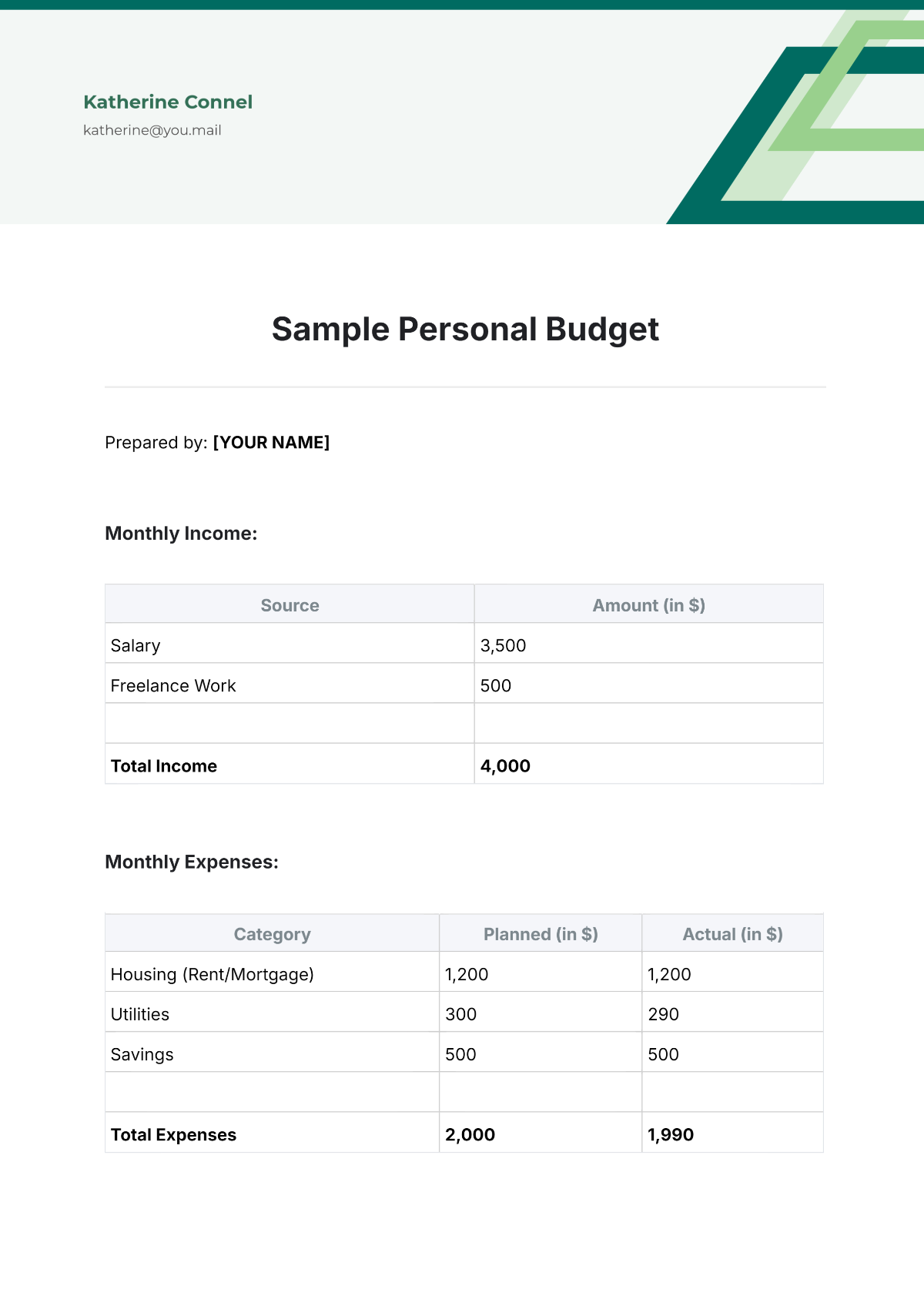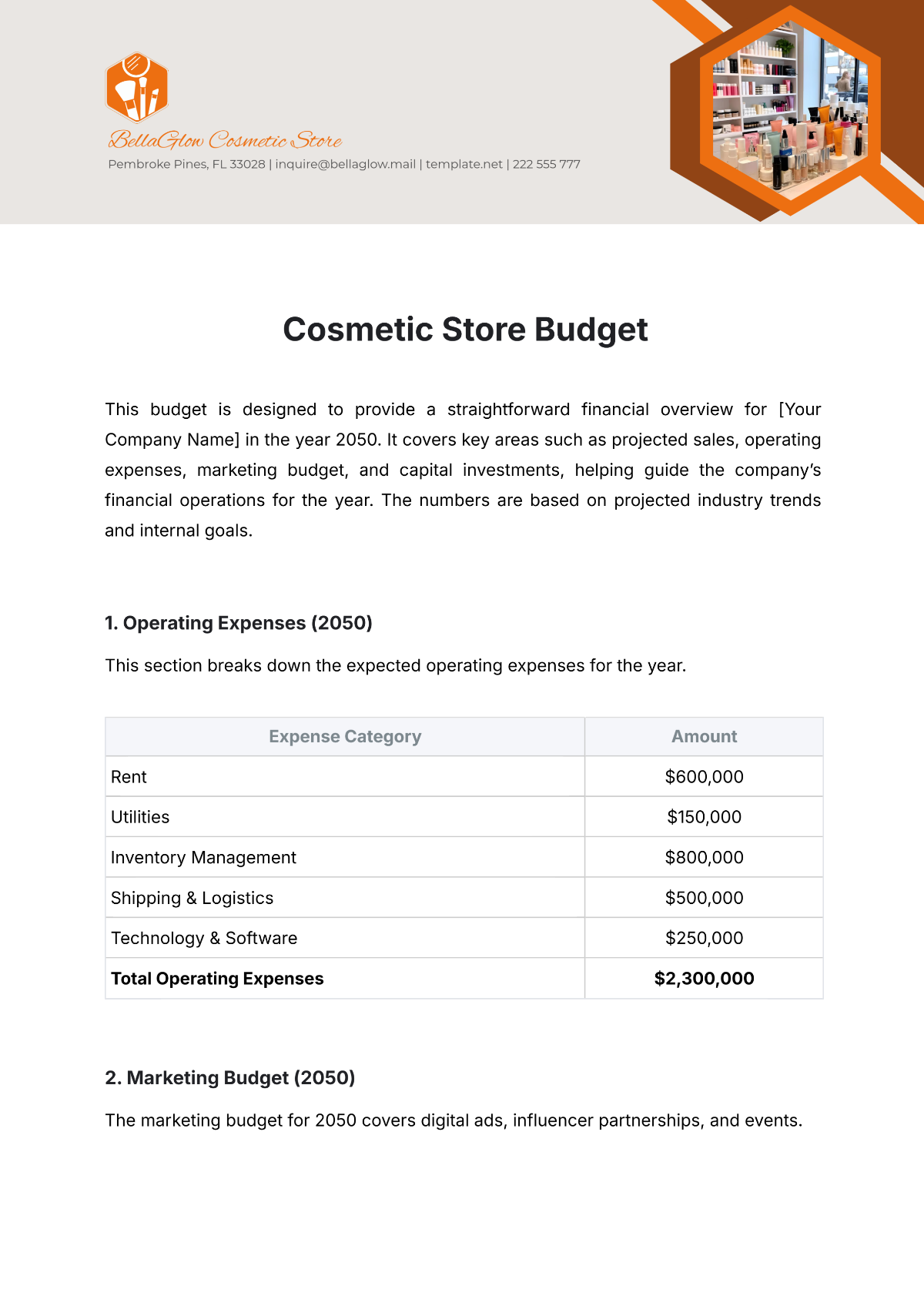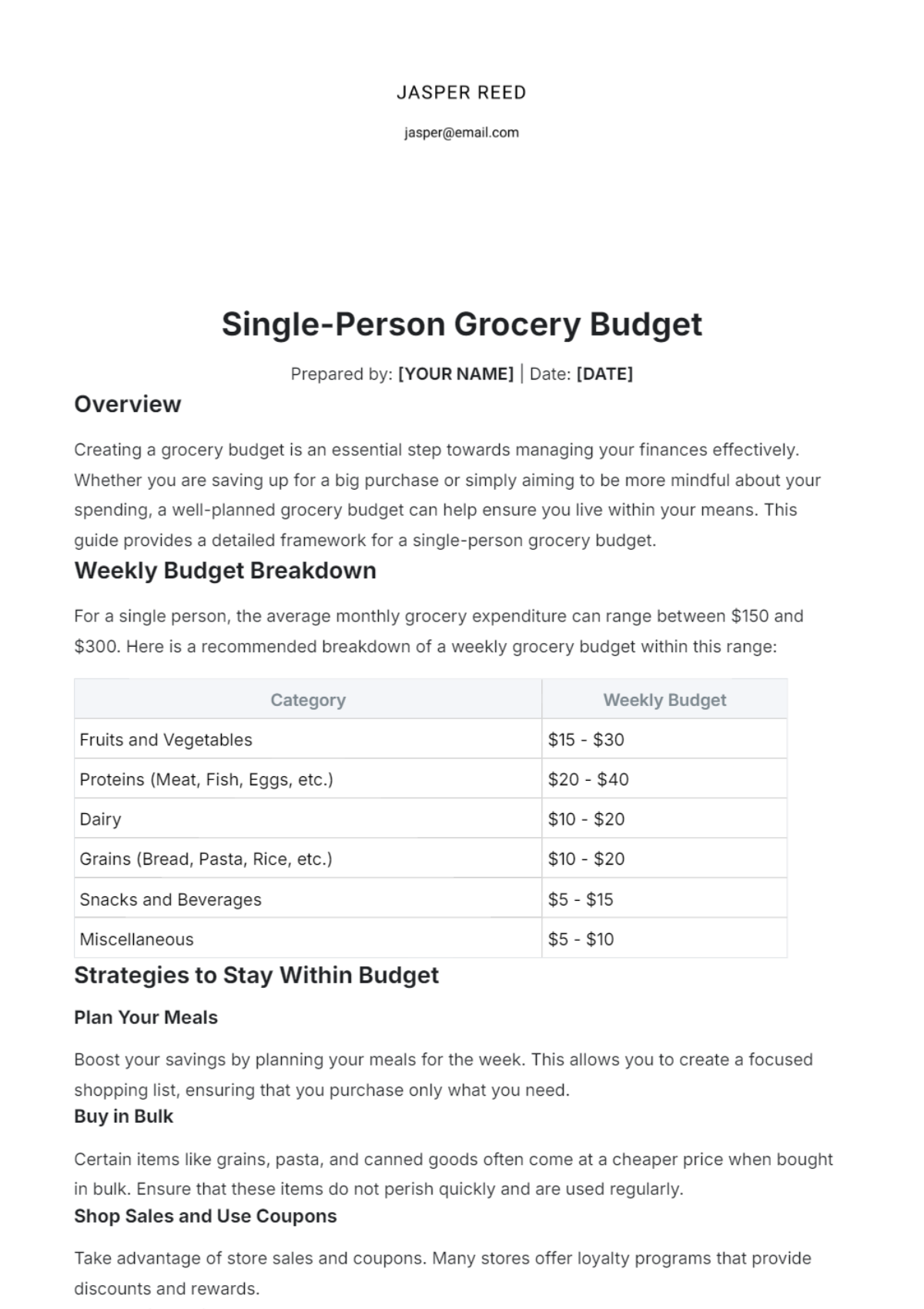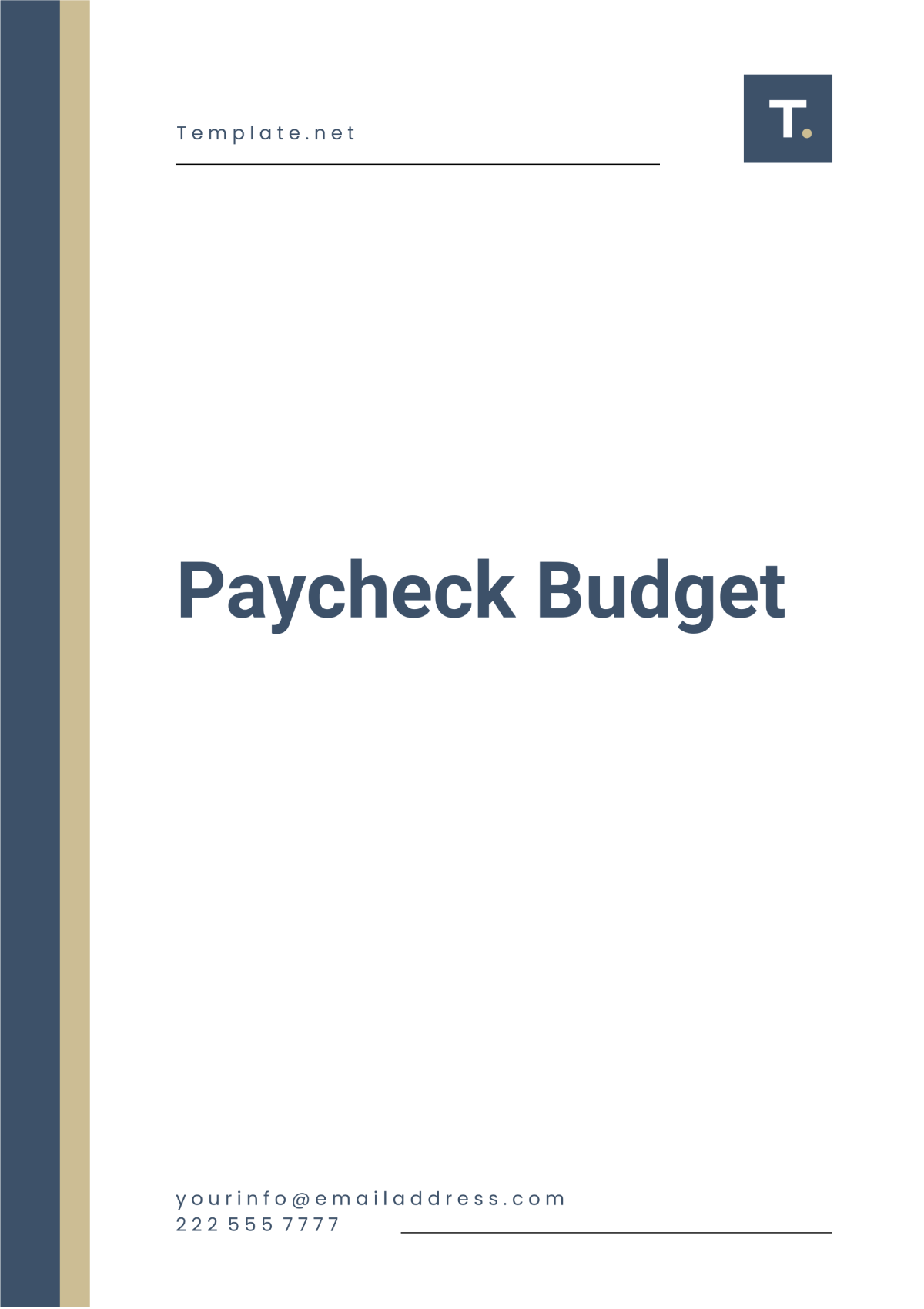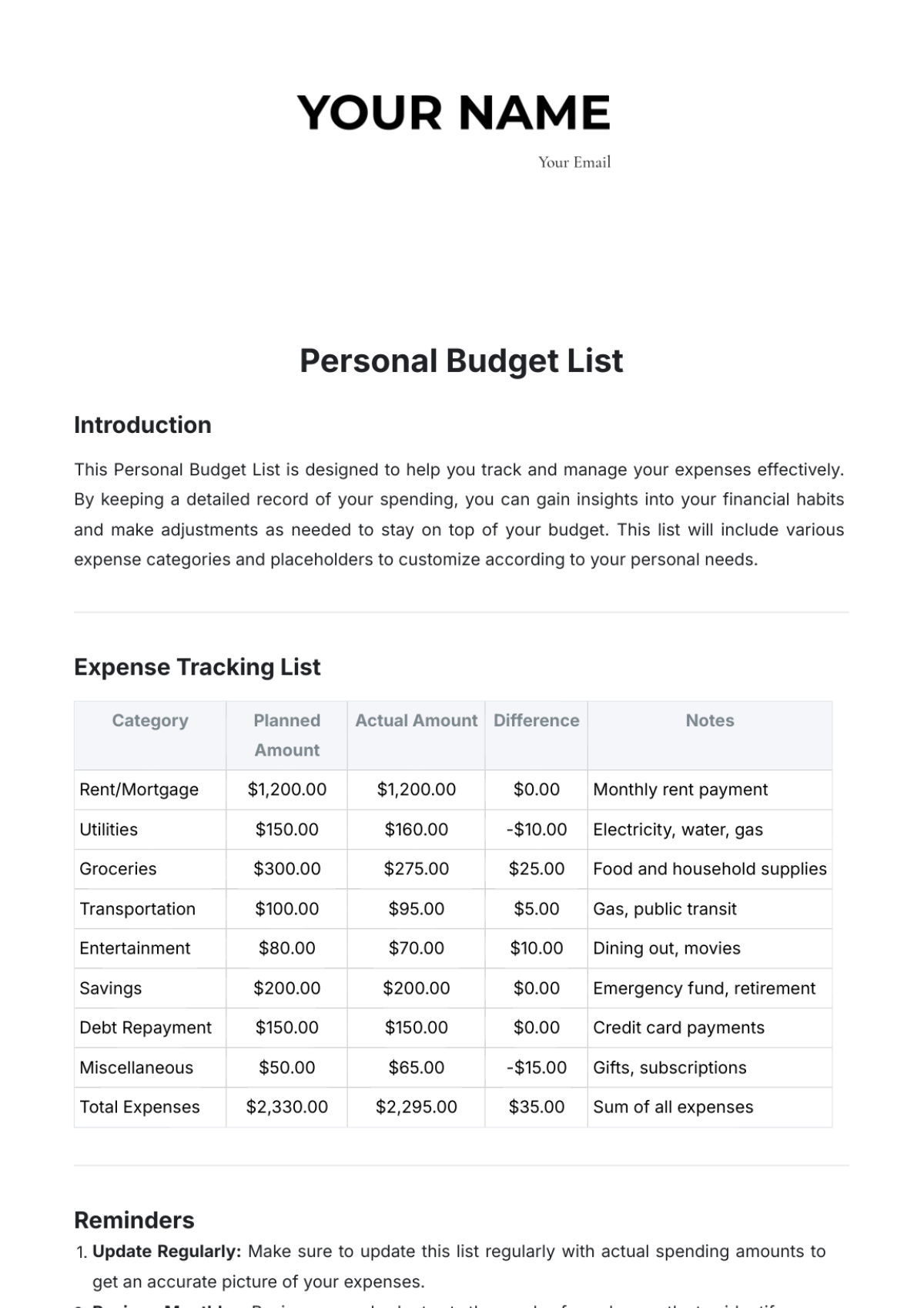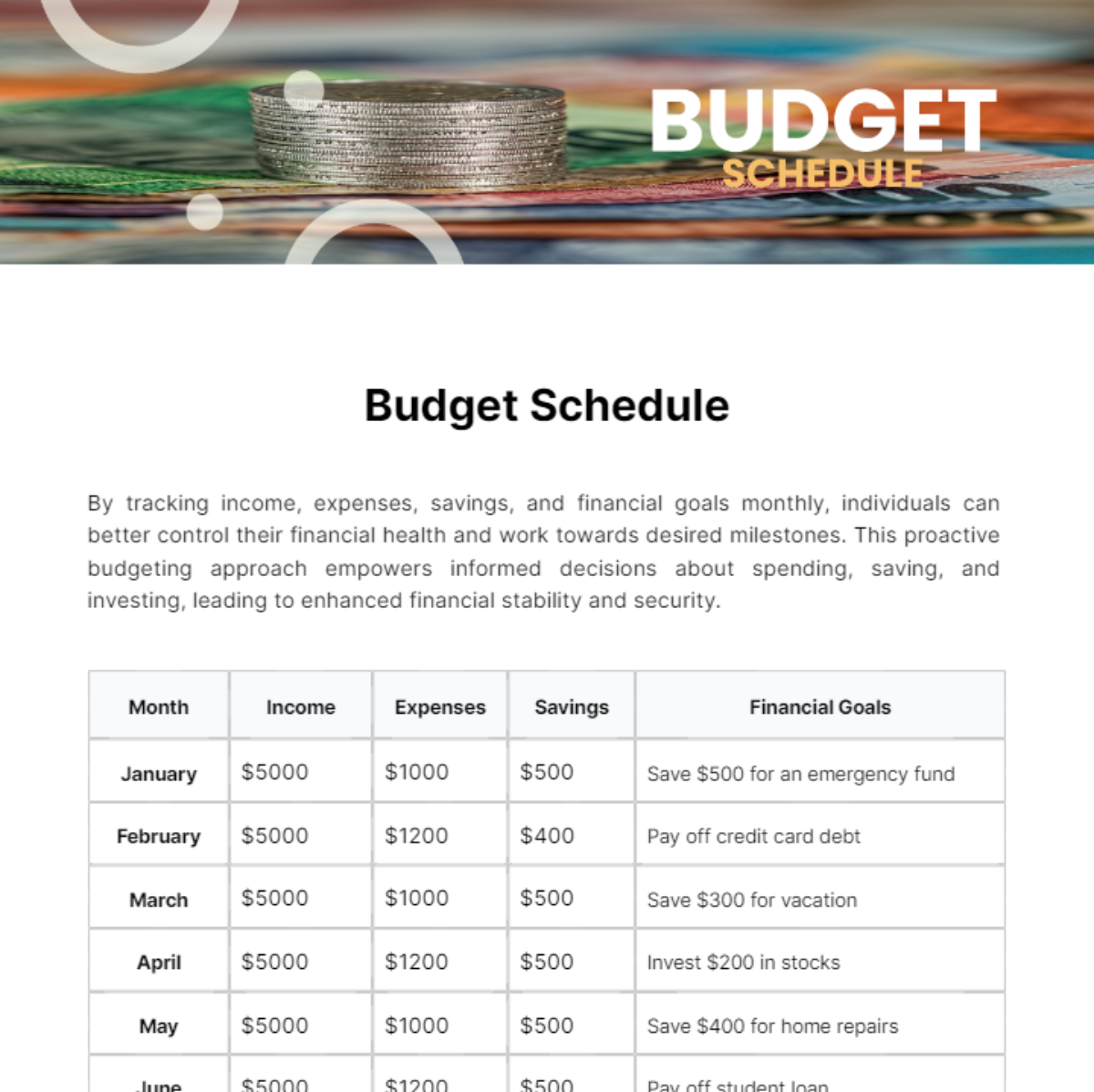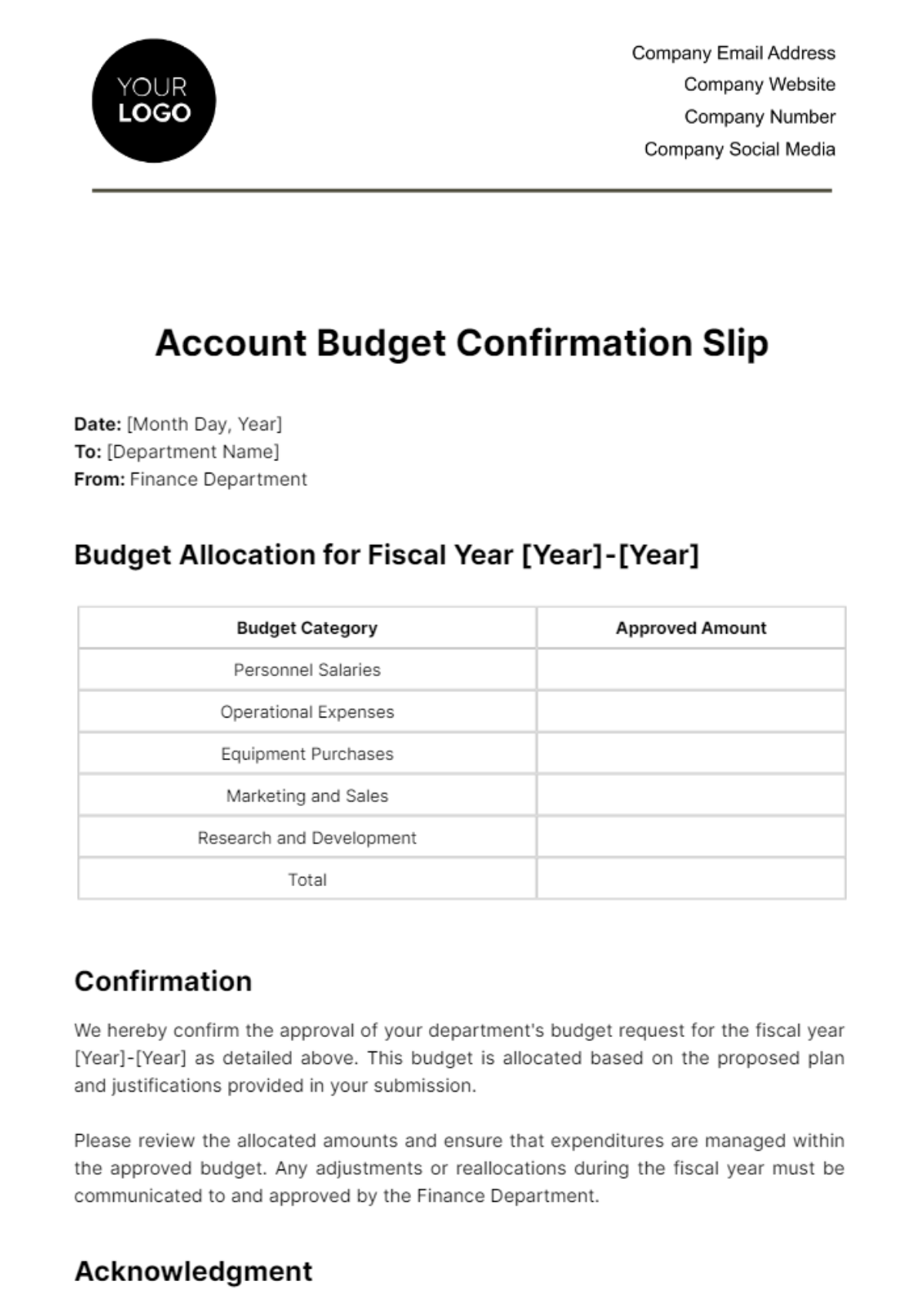Personal Budget Summary Sheet
Overview
This Personal Budget Summary Sheet is designed to help individuals track their income, expenditures, and savings efficiently. By maintaining an organized budget, individuals can manage their finances better, plan for future expenses, and secure their financial well-being.
Monthly Income
Understanding and documenting your income sources is the first step in building a comprehensive budget. List all regular streams of income received each month.
Salary/Wages
Investment Income
Rental Income
Other Income
Monthly Expenses
Detailing monthly expenses helps in identifying spending habits and areas where one can save. Categorize the expenses into fixed and variable to better understand financial commitments.
Fixed Expenses
Rent/Mortgage
Utilities
Insurance
Loan Payments
Variable Expenses
Groceries
Transportation
Entertainment
Dining Out
Savings and Investments
Allocating a portion of your monthly income towards savings and investments is crucial for financial security and achieving long-term goals. This section should capture regular contributions to savings accounts, retirement plans, and other investments.
Savings Account
Retirement Plan (e.g., 401k, IRA)
Stocks/Bonds
Emergency Fund
Budget Analysis
A thorough analysis of the budget allows for identifying discrepancies in income and spending. It helps in modifying habits to ensure income covers all expenses and leaves room for savings.
Budget Summary Table
Category | Planned Amount | Actual Amount | Difference |
|---|---|---|---|
Income | $5,000 | $5,200 | +$200 |
Fixed Expenses | $2,000 | $1,950 | +$50 |
Variable Expenses | $1,000 | $1,100 | -$100 |
Savings and Investments | $1,000 | $1,050 | +$50 |
Conclusion
Maintaining a personal budget summary sheet is crucial for financial management. By accurately documenting income, expenses, and savings, individuals are better equipped to make informed financial decisions, prioritize expenditures, and work towards their financial goals effectively.
